#future cops 1993
Text









Future Cops (1993) / Dir. Wong Jing, Cinematography by Andrew Lau Wai-Keung
#Future Cops 1993#Hong Kong Cinema#this movie is so stupid oh my god#but the fight scenes in this are so crazy and the wirework is awesome
1 note
·
View note
Text
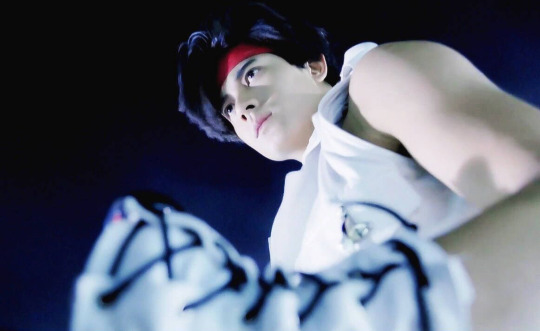
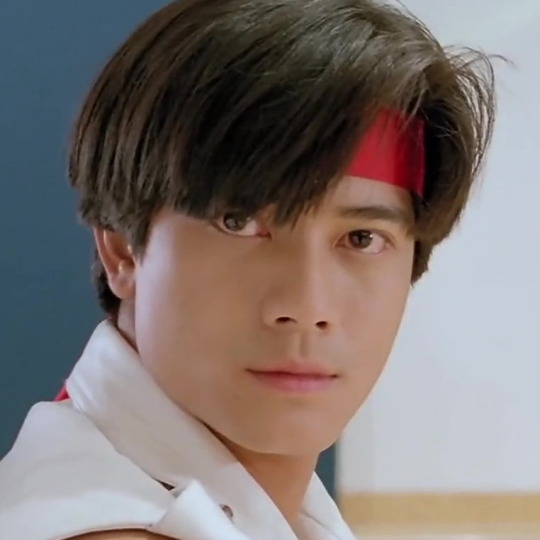

Aaron Kwok Fu Sing
1993’s “Future Cops”
#Ryu#ryu street fighter#Ryu cosplay#Aaron Kwok#future cops#future cops 1993#wong jing#hong kong cinema#action comedy
1 note
·
View note
Note
Could you make like a reference sheet or list with all the swamp chickens names and nicknames and hobbies/jobs? I keep getting them mixed up 😭😭
OH of course!!!
Their birthdays in order, nicknames, full names, jobs and hobbies!
Tennessee Jacob “Jake/Ness/Nessie” — July 4th, 1986
Prairie John “Ree” — December 10th, 1991, Nursing Student, inherited the same deep, dark anger as Jake and Joey from their father. He has brittle asthma type two and loves animals, reptiles especially. He’s been putting Jake back together since they were little. He becomes a nurse because he’s been one his whole life. Ree isn’t really amused by anything anymore. He grows up cynical, quiet and cold with people who aren’t his family. Redhead. Thinks of Jake as a big brother/guardian/the big boss.
Gunner Jesse “Gunny” — February 2nd, 1993, Police Officer, family clown and gentle in a way nobody else in the family is. He legitimately became a cop to help people, because no cops ever helped them when they needed it. He loves old movies and can quote them from memory easily. He loves sports and spent his whole life playing them, he got a baseball scholarship to go to school. Strawberry Blond/Ginger. Thinks of Jake as a big brother/parent.
Mackenzie James “Mack” — August 12th, 1996, Art Student, he loves drama, acting and art. He’s ridiculously talented and sees the beauty in things that aren’t. Brunet. He’s the first child to completely make the jump from Jake being big brother to Jake being his Dad. He doesn’t recognize any other father but Jake.
Indiana Joelle “Joey” — April 1st, 2000, future TG pilot, current cheer flyer and captain. She loves lipstick, indie music and pretty girls (Amelia Benjamin). She’s the kid with the worst anger issues and is the most protective of Jake. She hates where they came from, hates her birth parents and Nessie to her is a synonym for Daddy. Redhead, Bug’s identical twin.
Dakota June “Bug” — April 1st, 2000, she is the quintessential cowgirl and she ends up becoming an equine vet. She’s the quieter of the twins and does barrel-racing for fun, FFA and doesn’t care about makeup or kissing other people. She doesn’t expect anything of people, she just figures they’ll disappoint her. She still writes letters to their bio dad that never get sent and talks to her dead mama in the sky like she’s talking to God. Nessie to her is a synonym for Daddy. Redhead, Joey’s identical twin.
#top gun#Jake and the swamp chickens#Series: it runs in the family#The swamp chickens#jake hangman seresin#bradley rooster bradshaw#top gun 1986#top gun maverick#tw abuse mention#sereshaw#hangster
42 notes
·
View notes
Text
North To The Future [Chapter 12: Iris]
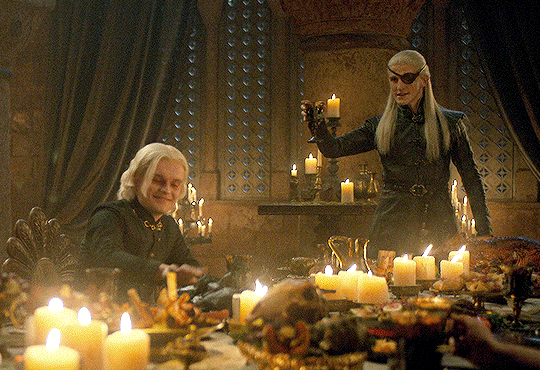
The year is now 2000. You are just beginning your veterinary practice in Juneau, Alaska. Aegon is a mysterious, troubled newcomer to town. You kind of hate him. You are also kind of obsessed with him. Falling for him might legitimately ruin your life…but can you help it? Oh, and there’s a serial killer on the loose known only as the Ice Fisher.
Chapter warnings: Language, alcoholism, addiction, murder, discussions of sex, sexual content, violence, discussions of suicide, Taco Bell.
Word count: 7.1k.
Link to chapter list (and all my writing): HERE.
Taglist: @ladylannisterxo @doingfondue @tclegane @quartzs-posts @liathelioness @aemcndtargaryen @thelittleswanao3 @burningcoffeetimetravel @hinata7346 @poohxlove @borikenlove @myspotofcraziness @travelingmypassion @graykageyama @skythighs @lauraneedstochill @darlingimafangirl @charenlie @thewew @eddies-bat-tattoos @minttea07 @joliettes @trifoliumviridi @bornbetter @flowerpotmage @thewitch-lives @bearwithegg @tempt-ress @padfooteyes @teenagecriminalmastermind @chelsey01 @anditsmywholeheart @heliosscribbles @elsolario @killerqueen-ofwillowgreen @narwhal-swimmingintheocean @tillyt04 @cicaspair418 @fan-goddess
Please let me know if you’d like to be added to the taglist! 💜
“It was New Year’s Eve,” you say, you know.
“New Year’s Eve, 1993.” Aegon checks the crimson-stained fistful of paper napkins he’s had jammed against his nose. His face is bloody and swollen and bruising; splotches darken from ash towards indigo as seconds tick by on the wall clock. Aegon winces under the stark florescent lights, stripped of all his shadows and secrets like a suspect being interrogated. A few tables away—far enough to give you the illusion of privacy, close enough to overhear any plots of escape—Aemond is clicking away on his BlackBerry, something you’ve never seen in person before. He is also dissecting, with great skepticism and plastic utensils, a Mexican pizza and Nachos Supreme. You aren’t sure what he had in mind when he asked for a restaurant within walking distance, but it certainly wasn’t Taco Bell.
“What happened?” you ask Aegon gently. It’s bad. It has to be bad.
He tops off his Mountain Dew with the bottle of Captain Morgan spiced rum that he added to his tab when the three of you returned to Ursa Minor for Aemond’s luggage: a single green Louis Vuitton suitcase that he had asked Dale to stow behind the bar. You have an order of Cinnamon Twists on your tray, but no appetite; you only sip tentatively at your own Mountain Dew, the ice cubes clinking in the paper cup. The Taco Bell employees watch reticently from their refuge on the other side of the cash register, like skittish animals in a zoo enclosure. The table that Trent mutilated is still wrapped with duct tape.
“Aegon?” you prompt.
“I went to a party.” He drags his fingers through his white-blond, blood-stained hair. It is wet from the snow, chaotic, untamed. His perpetually errant lock rests on his bruised cheekbone. “I was fucked up. I mean, everyone there was fucked up, but I was…combative, I guess. Do you know what a speedball is?”
“No,” you answer honestly. They don’t exactly run segments about things like that on 60 Minutes.
“It’s cocaine and heroin mixed together, and I’d never tried it before. I broke a window, I was shouting, I think I punched somebody. The people hosting knew my dad, so as a courtesy to him instead of calling the cops they called the house. My parents weren’t there. They were on a yacht out in Biscayne Bay, waiting for the fireworks to go off at midnight. Helaena was away at a boarding school in London.” He looks at you, his watery blue eyes slick and fearful.
“Aemond was the one who picked up the phone,” you realize.
“He was home with Daeron. He was sixteen, he didn’t even have a real driver’s license yet. He only had his learner’s permit.” Aegon guzzles down his Mountain Dew, adds more rum, stirs with his straw, takes another few gulps. “Aemond didn’t want me to get in trouble again. My parents were always screaming at me, they were always upset, and obviously Aemond had to live with that. He figured he could pick me up, drive me home, drag me upstairs to bed and my parents would never know the difference.”
You remember the twelve shallow scars blown across his chest like shrapnel. Car accident, he had told you. A long time ago.
“I fought him,” Aegon says. “I fought him all the way to the car, I fought him once I was inside. The security guys working the party handcuffed me to the armrest on the car door, but still, I was fighting. I was trying to get the key from Aemond. I dislocated a wrist and didn’t even realize it until later, my hand was swelling so badly the metal cuff was cutting into my skin. Aemond finally got my seatbelt on. And he was so preoccupied he forgot about his own.”
More rum and Mountain Dew, more self-medication. More cold, iron-heavy dread filling up your chest like seawater hemorrhaging into a sinking ship.
“We got on the MacArthur Causeway. Aemond was yelling at me to shut up so he could focus. He was trying to remember how to get home. It was dark, there were streetlights passing by overhead. There was moonlight on the waves in the channel. I finally broke the armrest off the car door and I…” He shakes his head, like no matter how true it is he still can’t believe it. He looks down at his open palms. “I grabbed the wheel.”
“You what?”
He flinches at the memory. “I grabbed the wheel and yanked it. Aemond was trying to push me away, but it was too late. We swerved into oncoming traffic and hit a minivan. Our car rolled over once, twice, I think four times total. The windshield shattered, glass went everywhere. That’s what happened to Aemond’s eye. He wasn’t even aware of it. I kept wondering why he wasn’t screaming like I was. He got knocked out on impact. He was in a coma for ten days. The doctors said he should have died.”
But he didn’t. And yet the guilt Aegon carries is so goddamn heavy. “What about the van?”
“It went off the road and into the channel. Everyone inside drowned. A mother and two kids.”
“You’re a killer,” you breathe, remembering the tattoo under his left collarbone.
Aegon agrees: “I’m a killer.”
You stare at him, paralyzed by wordless, icy horror.
“Everyone knows,” Aegon says, eyes wet, voice hoarse. “Everyone back in Miami knows. I couldn’t stay there. I couldn’t see Aemond’s scar, I couldn’t see the resentment on my parents’ faces every day for the rest of my life. I wasn’t just the fuckup eldest son anymore. There was nothing darkly, chaotically amusing about me. There was just plain darkness.”
“They didn’t…you weren’t…you never got arrested or anything?”
“No.”
“…Why?”
He shrugs, like it’s just the way the world works, gravity or nitrogen. “Aemond never told anyone how it happened. People knew, but he wouldn’t say it. And when the cops opened an investigation my dad made it go away.”
“How could he make something like that just…just…disappear?”
“The Microsoft office in Miami generates hundreds of millions in tax revenue each year. He threatened to get it moved to California or Texas. And maybe he threw in a holiday bonus for the police department, more money for pepper spray and flashbang grenades or whatever. All I know is that the lawyers descended and I never had to answer a single question about that night, and toxicology reports showed up claiming that mother driving the minivan had a blood alcohol concentration of 0.35.” He smiles, weakly and miserably. “People like me don’t face consequences, Appletini. They roll off our backs like rain and flood into the gutters to drown the rats.”
You can’t find your words. There’s nothing to say, or perhaps there’s too much to say; your thoughts are churning sickly like waves in a storm. From several tables away, Aemond glances over at you, his sapphire eye glinting under the unforgiving artificial light.
“And now you’ll hate me,” Aegon says with grave acceptance. He can’t blame you. He won’t even try to talk you out of it. “Just like everybody else.”
He’s been punishing himself for six years. And he’ll never stop. “I don’t hate you.”
His blood-stained brows knit together. “You don’t?”
“No.” I should, that’s true, and I would if it was anyone besides him. But I just don’t. And I have a few secrets of my own these days.
“I can’t believe that.”
“Read for yourself.” You offer your palms to him, sliding your hands across the table. At first, Aegon doesn’t understand, he doesn’t remember. And then he smiles, genuinely this time. Aemond is now watching intently and with palpable confusion.
Aegon traces the lines of your left palm with one weightless fingerprint. “It says you’re too good for this place. Maybe you’re too good for anyplace.”
“Do I finally know everything?”
“No,” Aegon says simply. “There’s over a decade of impassioned self-destruction in my rearview mirror. I could never explain all of it, and even if I could I wouldn’t want to. You have to accept that, or you have to move on. But now you know the worst of it. I hope that’s enough.”
You’re still thinking it over when Aemond forces down the last of his uninspiring Taco Bell dinner and approaches, toting his suitcase behind him. “Alright. Let’s go.”
“How did you find me?” Aegon asks.
“You gave the hospital a fake phone number and address, and then never paid your bill. They sent it to collections. I got a call asking if I happened to know where you were currently staying in Juneau.”
Aegon sighs deeply and rubs his eyes with both hands. “Goddammit.”
“What about the other cities?” you say. “Aegon mentioned that he saw you in Phoenix and San Francisco.”
Aemond looks at his brother as he answers. “The journals.”
Your stomach drops. Jesse. He’s just like Jesse. “The…?”
“He left all these journals in his room. There were lists of cities in them. Cities crossed off, cities circled. Potential places to hide out, I figured.”
“But…but…” Aegon sputters. “There must have been a hundred different names on those pages—!”
“Yes,” Aemond replies coldly. “One-hundred and twelve, actually. And every weekend, every break from school, every chance I got I picked one city and went there hoping to find you.”
Aegon sinks down into his chair, dismayed and guilty and small like a child. He says in a whisper: “I can’t work for Dad.”
Aemond is disgusted. “I don’t need you to help run the company. I need you to show Mom that you’re okay.”
“Oh, right, because Dad already found a new heir.” He studies Aemond. “MIT?”
“I graduated last year.” And you weren’t there, his tone implies.
“Fantastic. And I bet Dad didn’t even have to buy your way in with a brand new shiny gym, complete with an Olympic-sized pool and a rock wall.”
“He did not, that’s correct.”
“You went to MIT?” you ask Aegon, mystified. You can’t imagine that going well.
Apparently, it didn’t. “Briefly.”
“Three weeks, I think?” Aemond says.
Aegon frowns, slurping his rum and Mountain Dew. “Five.”
“You can have tonight,” Aemond tells him. “We can stay in your apartment. You can say goodbye to your girlfriend, or…whatever she is. And then we’re flying out in the morning.”
Aegon perks up, a lawyer seizing upon an exonerating technicality. “I can’t leave until they’ve captured the Ice Fisher.”
“The who?”
“He’s a serial killer. He’s been murdering people in Juneau for months. Right?” Aegon turns to you for confirmation.
“Right,” you say.
“I can’t leave her alone. It’s not safe. What if she gets killed as soon as I jet off to Miami? That would be a completely avoidable tragedy. I have to make sure she’s okay. I’m trying to turn over a new leaf here.”
Aemond’s remaining eye blinks slowly. “This is a bizarre stalling tactic. Ineffectual, yes, and yet I have to applaud your frenetic ingenuity.”
“Ask them,” Aegon pleads, gesturing to the Taco Bell employees behind the cash register. “The Ice Fisher is real. They’ll tell you.”
Warily, Aemond goes to the counter. He exchanges a few words with the employees—who gape impolitely at his gnarled scar and glittering sapphire eye—and then returns, eyebrows raised. “Well, that was unexpected. How long has this Ice Fisher been terrorizing Juneau?”
“Since October,” you tell him.
“Hm.” Aemond toys with his BlackBerry, gazing out the windows at the dark windswept night. He says to his brother: “How did you manage to end up in the one town in Alaska with an active serial killer?”
“Luck, I guess.”
“Bad luck,” Aemond clarifies.
“No,” Aegon says, looking at you. “Just luck.”
“And once the murderer is arrested, you’ll leave without any complaints?”
Aegon’s face is a mask, consciously expressionless. “Yes.”
“Alright. Then here’s how this will work,” Aemond begins. “You can stay for now. And I’ll stay here with you. You’ll turn over everything to me: id, keys, cash. You won’t go anywhere without me knowing about it. And in return, I’ll make a few calls and see what I can do about this Ice Fisher situation.”
“You don’t need to worry about me disappearing,” Aegon insists. “I told you. I can’t leave until the Ice Fisher is caught. I’m not going anywhere. I’m stuck.”
“Nonetheless.” Aemond’s eye is a primordial, savage blue. “You will do as I say. Or I will drag you home to Miami, serial killer be damned. This isn’t my city. These aren’t my people. Juneau could sink into the Pacific Ocean and my life wouldn’t change one iota.”
They’re that determined? They’re that capable?
One of them, yes.
Aegon is compliant, almost tame. It is a strange skin for him to wear. He shows Aemond his palms in surrender. “I understand completely.”
“Good,” Aemond says, and you bag up your leftover Cinnamon Twists to take home before following him and Aegon to the door.
The three of you walk together back to Ursa Minor. Heather’s Chevy Suburban is still in the parking lot, so you know you can get a ride home with her. This is convenient; your Jeep is at home in your parents’ driveway, and Aegon is drunk. Before you can step inside the bar, Aemond stops you, pulling you aside as Aegon waits several yards away on the snow-covered sidewalk.
He asks, low enough that Aegon can’t hear: “What has he used since he’s been in Juneau?”
“Rum. And whipped-cream flavored vodka.”
Aemond nods. “What else?”
You hesitate.
“I can’t protect him if I don’t know what to look for.”
“Heroin,” you confess. “But only once that I know of.” And in those words is a truth that you hate: you’ll never know for sure what poisons Aegon is dulling the immutable, needlelike pain of his existence with. You will only know what he chooses to show you…and what he is too far-gone to hide.
Aemond closes his eye for a moment. “Yes, that sounds about right.”
Aegon stands in an isle of streetlight luminescence, his hands in the pockets of his parka. He watches you: wanting to speak to you, wanting to do much more. And he doesn’t move until Aemond grabs the back of his coat like the scruff of a kitten and hauls him off towards the apartment building.
~~~~~~~~~~
When you’re done at the vet clinic the next day, you bring Sunfyre to Aegon’s apartment. You figure he could benefit from some cheering up. When you arrive, Aegon is just getting out of the shower and changing into his street clothes, his hair messy and wet, the scars on his pale chest eclipsed by his black and white striped long-sleeve shirt. After much debate—which primarily consisted of Aegon keeping his brother awake with an acapella rendition of Cotton-Eyed Joe until 4 a.m.—Aemond had agreed to allow Aegon to go to work. It wasn’t for the money, Aegon said, which Aemond would confiscate from him anyway. It was so he wouldn’t let his crew down by quitting with no notice. Still, Aemond accompanied him to and from the docks like a parent taking their kindergartener to the bus stop. The golden retriever bounds into Aegon’s outstretched arms, tail wagging manically.
“Hey, buddy!” Aegon gushes, flopping down onto the scuffed hardwood floor to roll around with him. “I missed you so much! Who’s a good boy? Who’s a good boy?!”
“What is that?” Aemond asks, glowering as he reaches for the refrigerator handle.
“This is Sunfyre. He’s my dog. And he’s the best boy in the whole wide world, aren’t you, buddy? Aren’t you?! Yes you are!” Sunfyre barks in concurrence.
“You can keep a dog alive?” Aemond opens the refrigerator. “All you have in here are Lunchables and Coca-Cola. And...coffee creamer, for some reason.”
Aegon, still sprawled on the floor and scratching Sunfyre’s ears, shrugs. “Then go to the Foodland. You have credit cards.”
“Foodland…?”
“Ohhhh.” Aegon cranes his neck to grin up at you. “He’s never been to a grocery store.”
“Really?” you ask Aemond, who is grimacing, annoyed but also…uneasy. Embarrassed, even. It’s the first time you’ve ever seen him rattled. “How is that possible?”
“I’ll tell you how,” Aegon says, squishing Sunfyre’s cheeks together. “Private chefs, personal assistants, five-star restaurants…”
“This town is a graveyard where culture goes to die,” Aemond mutters. He slides his BlackBerry out of his pocket—he’s wearing another black suit today—and begins typing.
“We can go to Foodland,” you offer. Aemond narrows his gaze at you suspiciously. He doesn’t understand why you would want to be accommodating. It’s really not that complicated; the more comfortable Aemond is in Juneau, the longer he’ll be willing to stay. And he seems like a useful friend to have.
Aegon stands, giving Sunfyre one last pat on the head. “Sure. As long as we’re back by 7.”
Aemond puts his BlackBerry away. “What happens at 7?”
Aegon smiles. “My band is performing.”
“Your what?”
“You’ll see,” Aegon says, and grabs his parka from where he had tossed it haphazardly on the couch earlier. Trent, you think, helpless and dismayed. If the band is at Ursa Minor, that means Trent will be there too.
The Foodland is fairly bustling; there is a blizzard forecasted to hit Juneau tomorrow, and locals are stocking up on essentials to last them through the storm. As Aegon fills a basket with Doritos and Dunkaroos, you follow Aemond to the fresh produce section. He picks up a single bunch of broccoli and sets it in the cart.
You laugh, ripping off a translucent plastic bag from the dispenser. “It goes in here.”
“Oh. That makes sense.” He secures the broccoli in the bag, then begins filling another bag with Braeburn apples.
“Wait, wait…you can’t just throw them in like that…you’ll bruise them. Here.” You take the bag and show him. “You pick up each apple, check it to make sure it’s good, no brown squishy spots, and then place it—gently—in the bag. Now you try.”
Aemond successfully procures a dozen satisfactory apples. He’s wearing an eyepatch made of black leather, which is unusual. It’s the first time you’ve seen his wounded eye obscured since you met him.
“Awesome. Be warned though, fruit is super expensive here. Those apples are probably going to be like twenty bucks.”
Aemond smirks. “I think I’ll manage.” He checks his BlackBerry and clicks out a quick reply.
“What are you emailing people about?” It feels odd to even say the word email. It sounds like something you’d hear on Star Trek or the X-Files.
“Napster.”
“What’s Napster?”
“A peer-to-peer file sharing application.”
“Oh, yeah, totally.” You have no idea what that means. “Is Targaryen Enterprises going to invest in it?”
“Probably. But that’s still confidential at this stage in the negotiations.”
“So you’re going to be in huge trouble when they find out you let me in on the secret.”
Aemond smiles, not in a friendly way but not entirely mocking either. “Who could you possibly tell? You’ve never met anyone who matters, and you never will. No one except me and Aegon. And we’ll be gone before you know it.”
You consider him, hushed and regal and stoic and yet…somehow, undeniably…dangerous. “Why did you put on your eyepatch before we left the apartment?”
“I try to wear it if I might be around children. The eye frightens them. And if I take the sapphire out, it’s just a gaping hole. That’s even worse.”
“But you don’t wear the eyepatch all the time.”
“No.”
“Why? Too…piratey?”
“No. Nerve damage.” He signals vaguely to the ruined half of his face. “The eyepatch rubs. It can set it off. And once it gets rolling, there’s no stopping it.”
And because you’re a vet, you know exactly what nerve damage is: numbness, or burning, or blinding electrifying pain, or all three in a rotation like a wheel. “I’m sorry,” you say softly. “Aegon, he…he’s never forgiven himself for it. I don’t know if he’s ever said that to you, but it’s true. I think he would take the pain for you if he could.”
“He wouldn’t,” Aemond says bitterly. “He wouldn’t even come home.”
And I don’t think he ever will. I think he’d skydive out of the plane without a parachute first. “Can you tell me what it’s like? Miami? I’ve never been.” I’ve never really been anywhere.
“I can do better than that. I can show you.” He opens his wallet—black leather, just like his eyepatch, gleaming and heavy—and slips out several small photographs. There’s the beach, and palm trees, and the city skyline, and several luxury cars, and a building with a glass spiral staircase and tall white walls speckled with bewilderingly abstract pieces of modern art.
“Oh, is that a museum?”
“That’s my parents’ house.”
“Right,” you reply, wide-eyed.
Aegon appears with a basket so full he has to lug it around with both hands. “Guess who I saw in the snack aisle,” he says to you, heaving his basket into the cart.
“Watch the apples!” Aemond hisses.
“Who?” you ask Aegon.
“Our favorite former-football star.” Icy, stunning fear seeps from your skin all the way down to the bones. Trent. “Congratulations on getting rid of him, by the way.”
You try to keep your voice level. “I got rid of him?”
“Seems that way.” Aegon plucks a banana off the display shelf, unpeels it, and takes a bite.
“You’re paying for that,” Aemond says.
Aegon continues: “Trent’s been super happy recently. Creepily happy, actually. I keep asking him what’s up but he won’t tell me, he just flashes that big stupid grin. Well just now he finally dropped a hint. He’s having luck with some girl he’s really into. Says things are finally looking up for him in the love department. And if he’s not talking about you, Appletini, it’s got to be someone else.”
“That’s wonderful news,” you say, barely hearing yourself. It's me, you think, petrified. It’s me that Trent thinks he’s going to end up with, and how the hell am I going to tell Aegon that?
“Who’s Trent?” Aemond inquires.
“Just a guy,” you reply. “A big, Hulk-like, not terribly intelligent guy.”
“You should probably check him out,” Aegon informs his brother. “I find it hard to believe that he could be a killer—he’s violent sometimes, but not, like, murderously violent—but he’s the only real suspect we’ve got.”
Aemond’s jaw is rigid, contemplative. “Hm.”
Aegon finishes his banana, tosses the peel under a table stacked high with boxes of donuts, and pushes the cart towards the checkout counter. Aemond takes off after him. “Hey, what did I say about the banana—?!”
Trent, you think despondently, staring blankly at rows of glossy apples: red like blood, green like life. I have to tell him about Trent.
~~~~~~~~~~
“Bitch!” Heather proclaims when she spies you, arms thrown wide open. She embraces you, the golden sequins of her shirt snagging on the loops of your turquois sweater. “Whoops, sorry Grandma.” She untangles herself. Joyce, Kimmie, and Brad wave from the usual booth. Rob and Trent are warming up on their instruments. Aegon meanders unsteadily over to join them, downing a rum and Coke assembled by a yawning Dale. You wonder how much Aegon owes on his tab now. It has to be a thousand or more. Maybe Aemond will pay it before he leaves. Before he drags Aegon back home to Miami screaming like stormwinds.
From behind his drumkit, Trent beams at you, showing all his teeth. You shudder when you remember the bruise they left on your neck. Nonetheless, you smile back noncommittally; the last thing you need is to prompt him to make a scene.
Heather gestures to Aegon. “British Kurt Cobain.” Now she points at Aemond. “Albino Fabio.”
You burst out laughing. “Yeah, basically.”
“What’s up with the…?” She taps her own left cheekbone. The scar, she means, The eye.
“It’s a long story. Aemond is Aegon’s brother, he’s here to convince him to go home.”
“I’d like to think I’m a pretty non-judgmental person, but their parents really should have invested in a baby names book. Where’s home?”
“Miami.”
“Well fuck, I wouldn’t mind jetting off to Miami. Think Aemond would take me instead?” But she’s joking, of course. Heather loves Juneau. She would never put it so sentimentally, but she does. Kimmie adores being a big fish in a small pond; she wouldn’t make such a splash anywhere else. Joyce needs the quiet. Only you were cursed with this greedy restlessness that is inked to you like an invisible tattoo; only you inherited this nameless craving for more.
“You should ask,” you tease Heather. “Ask Aemond really, really nicely. And make sure you nuzzle up against him so he can feel that you’re not wearing a bra.”
She gasps. “You can tell?”
“Heather, everyone can tell.”
She grins mischievously. “Good. That’s the point.”
You order drinks together—a Sex On The Beach for Heather, a blackberry Bacardi Breezer for you—and then part ways. Heather joins the growing crowd that is gathering to watch Boat #27’s imminent performance. You sit next to Aemond at the bar. He’s sipping a Caipirinha, taking slow, shallow, meditative tastes. He’s staring at the band, but you’re not sure if he’s really seeing them. Aegon gulps down another rum and Coke—his second in about five minutes—and staggers as he tests the microphone. His white-blond hair falls untidily over his eyes. No one seems surprised to see the mottled bruises or split lip on his face. It’s the sort of thing to be expected from someone like him; drunks wear ill-gotten injuries like diamonds and pearls.
“It’s not good for him,” you tell Aemond. “You being here.”
“Nothing’s ever been good for him,” Aemond says. “I remember being twelve years old and my whole life was trying to stop him from jumping out of a window or in front of a car. When we locked up all the pain pills he found bottles of Vitamin A tablets and swallowed about five hundred of them before we kicked the door down. We got his stomach pumped, brought him home, and the next day he tried the same thing all over again with my mother’s EpiPens.”
“Oh my god,” you whisper, agonized.
“I’m not here to torture him. I’m here to help. I want to help my mother move on with her life. I want to help Helaena and Daeron get their brother back. And I want to help Aegon become a better man. It’s possible, I think, if he’ll work for it. But it’s not going to happen as long as he’s running between cities and from one addiction to the next. He’s got to come home. He’s got to face what he’s done and learn how to cope with it.”
The band has begun their song. It’s Iris by the Goo Goo Dolls, a peculiarly subdued choice. Aegon sings with his eyes on you and his calloused fingertips scaling the fretboard of his battered green electric guitar.
“And I’d give up forever to touch you, ‘cause I know that you feel me somehow.
You’re the closest to heaven that I’ll ever be, and I don’t want to go home right now…”
“Hm.” Aemond’s face—half-immaculate, half-mutilated—holds a quiet, intense curiosity that might even be a dash of awe. “I’ve never seen him play before.”
“Really?”
“Really. He’s not bad.”
“He’s perfect,” you murmur.
“So you’re in love with him too.” Aemond nips at his Caipirinha. “I feel so sorry for you.”
You glare at him, flushing and furious, the kind of flame-red rage you can only conjure for someone when you know they’re right. Aemond is aware of this, but it doesn’t seem to bother him. He is as cool as his Caipirinha: frosty and still and sharp like glass. His sapphire glints, his scar grows darker in the twilight dimness of Ursa Minor. You miss the Christmas lights; you miss what could have been if Aemond had never walked with his light and yet decisive steps into Juneau. You swallow your Bacardi Breezer like reckless, venomous words.
When the song is over, Trent begins making his way through the crowd towards you. You hop off the barstool and evade him, weaving from one end of the packed room to the other. He gets drawn into a conversation with Matt and Gary, but he’s still scanning the sea of faces for yours.
If he finds me, it’s going to all come out into the open. He’ll say something, or I’ll say something, or Aegon will say something, and then it will be out of my hands. I have to tell Aegon first. He has to hear it from me.
Aegon finds you, smiling in that warm, dreamy, tipsy sort of way. “Hey, Appletini—”
“I have to talk to you.”
Immediately, it startles him: your voice, your face. “What’s wrong?”
“I just have to talk to you about something. Right now. Where can we go?”
“Uh, uh…” He glances around, and then he points to the staircase. His disobedient lock of hair is a white stripe across his cheek. “The roof?”
“Okay. Yes, good.”
“Great.”
You go to the coatrack together to fetch your parkas, then make for the steps. Aemond is there to meet you, towering and lithe and silver like lightning.
“Please, Aemond,” Aegon says. “We need ten minutes.”
“You can’t have it.”
“Ten fucking minutes,” Aegon snaps. “It’s a rooftop patio, it’s not in use during the winter. For Christ’s sake, we’re not going to jump off of it or anything. There’s nowhere for us to run. She’s not leaving Juneau. I have no money, no license, no nothing. You have all of that. Don’t you get it? There’s nowhere for us to run.”
Aemond’s BlackBerry starts beeping. He whips it out and reads the message. “Fine,” he snarls, like a verbal shove hard enough to bruise. “Just go. Ten minutes.” And as you and Aegon ascend the staircase, you catch a glimpse of Trent watching from across the crowded bar, knocking back a Heineken and simmering with some pattern of layered emotions that you can’t read.
Outside, the night sky is muted with cloud cover: thick, dark, starless. The moon is a vague blur of eerie ethereal light, a reflection of a reflection. And sometimes, you think you might be something just like that.
“What is it?” Aegon asks. And his face destroys you: seeking but not suspicious, concerned but not fearful. He would never see this coming. Not now. He trusts me too much. He thinks too highly of me. Much, much too highly. And isn’t that what love always does to people? Cold Arctic wind spirals around you both, tearing at your hair, wrenching tears from your eyes like doomed fish from a lake.
“I hooked up with Trent.”
Aegon’s face doesn’t change. He’s heard it, but he hasn’t felt it yet. “Like…a long time ago?”
“No. After the New Year’s Eve party.” After I found you in your apartment.
The first wave of it hits him: in his shoulders, in his eyes, in his tremulous voice. “And when you say hooked up, you mean…what? Second base?”
“No. I mean everything.”
“Everything,” he repeats numbly.
“Yes.”
He takes a step back from you, covering his mouth with one hand. He stares down at the snow around his Doc Martens combat boots, shaking his head and saying nothing. That’s worse than shouting. You had been prepared for shouting.
“Aegon—”
He puts his hands up like he’s barring a door. “I need a minute, I need a minute.” He inhales, exhales, rubs his furrowed forehead with his thumb and index finger. “Why—?” His voice breaks off. He tries again. “Why would you do that?”
“I was angry, I was so goddamn angry at you. And I’m not trying to make excuses, I’m just…I’m just trying to explain. I was so desperate to feel something other than what I was feeling that I made a mistake. A horrible, humiliating mistake. Now Trent thinks I really like him and that’s bad but what’s worse is the fact that now, right now, I have to tell you the truth. I’m so fucking sorry. And I would change it if I could but I can’t.”
Aegon looks at you. “You weren’t…you know…” He flinches like somebody’s struck him. “Afraid of Trent?”
“It was at my house, my parents were around—”
Again, he stops you, holding up his hands. “I can’t hear the details, I just can’t.”
“I’m sorry,” you repeat in a whimper. It’s almost inaudible in the roar of the wind.
It seems like forever before Aegon speaks. When he does, there’s no fury. It is a controlled, calm surrender. “Okay.”
“Okay? That’s all? Okay?”
“It’s my fault, right?” he says. “It would be pretty fucked up of me to blame you for something that only happened because of what I did. So okay. Don’t worry about it. We’ll deal with Trent together. We’ll figure something out. We—”
You rush to him and Aegon catches you, shocked but welcoming, harboring. You burrow into him as he strokes your hair and shields you from the frigid wind, soothing you with soft, sighing words, his damaged lips warm against your ear.
“Shh, shh, you’re okay, Appletini. I’m not mad. You’re okay. You’re okay.”
“Yeah,” you agree, biting back sobs. “Right now I am.”
But what about when you leave, Aegon? What about then?
~~~~~~~~~~
You’re lying in bed—showered, somber, oversized T-shirt and blue flannel pajama pants—and staring at the celebrity posters on your wall when the phone rings. You frown at it as it sits on your nightstand, a beacon of both hope and despair. Trent. It’s probably Trent.
Downstairs, your mom is engrossed in a riveting book club meeting. You can hear the attendees debating the merits of A Walk To Remember through the floorboards. You snatch up the phone before one of your parents can answer and invite Trent over for tea and Tongass Forest Cookies.
“Hello?” you say, with great annoyance.
“Hey, Appletini.”
“Heyyy!” You bolt upright in bed. “What’s up? Why are you whispering?”
“Aemond’s asleep on my couch. I think if I keep him awake again, he might disembowel me.”
You smile. “So why risk it?”
“I had a weird feeling. I wanted to make sure you were alright.”
“My mom’s book club is getting extremely heated downstairs. I’m currently in bed and staring at my numerous Ricky Martin posters. I’m fine.”
“Just fine? Not better than fine?”
You twirl the phone cord between your fingers. You remember what his bare skin felt like against yours, what he tasted like, the way your fingers twisted in his hair. It’s all you can think about; you can’t stop. Maybe it’s better not to. After all, time is running out. “I want you,” you say simply.
There’s no question of whether Aegon will agree. He goes straight to the logistics. “I think that would definitely wake up Aemond. And even if he didn’t have my keys I’m not…uh…in driving condition.” Not sober, he means.
“I have a Jeep.”
“I’ll look for you in ten minutes.” He hangs up. You wave a bashful hello to the book club attendees as you race by them and out into the driveway, clutching the bear mace that hangs from your purse just in case the Ice Fisher happens to be lurking nearby. You don’t even remember your parka.
As you idle under the streetlight in front of Aegon’s apartment, he comes running out of the building in his black Nirvana T-shirt, green flannel pajamas, open parka, and hastily thrown-on boots, the laces untied and flapping. You get out to meet him in the backseat, locking the doors with a distracted press of a button. Both of you kick off your boots and toss them onto the floor. Neither of you speak; there’s no need for it.
You yank off Aegon’s parka and T-shirt as he drags you into his lap, one hand pressed into the small of your back and the other cradling your face, kissing you with vicious desperation. His split lip, still healing, is rough against yours; the bruises on his face are shadows under the murky streetlight glow. You knot your fingers in his hair, drawing him in closer, closer, never close enough. He tugs your shirt over your head and finds nothing underneath but bare, needy flesh that aches for him like lungs burn in the cold.
As his hands wander, he murmurs against your throat, breathless and urgent: “I missed this. I missed you.”
“Show me,” you beg him. You can tell how hard he is; you can recall exactly what it will feel like once he’s inside you, filling and safe and deeply, immensely good. You grab his hands and put them on the waistband of your pajamas. “Aegon, please, I need you so fucking badly. Show me how much you missed me.”
He throws you down across the backseat, cushioning your head with one hand so it doesn’t hit against the door. Then he positions himself between your thighs, panting as he hooks his thumbs under the elastic of your pajamas. They’re gone in an instant, your legs bare and shaking with the rush of adrenaline. Aegon is pushing your thighs apart so he can kiss his way up the inside, his rough wounded lips pressed to your vulnerable skin. You can feel the heel of his palm kneading you through your panties, simple blue silk that is soaked for him; he’s about to take them off.
“Yes,” you moan, almost unable to stand it. The Jeep windows are clouded with sweltering fog. “Yes, yes, oh god, Aegon, yes—”
There is a deafening sound, a breaking, a crashing; someone is screaming, and it takes a moment for you to realize that it’s you. The Jeep door rips open, startlingly cold night air flooding in and ravaging your bare skin, slick with the sweat of now-vanished lust. Something grabs your hair and—with horrifying, relentless force—drags you out into the snow. There are shards of glass littering the ground from the broken window. One of them cuts into the side of your right thigh, spilling blood that is more black than red under the dim beam of the streetlight. Aegon is shouting, and someone else is too, a rumbling voice that at first you can’t place. Then you look up and see him. Trent stands above you, one hand still gripping your hair, the other holding a rock as big as a human skull. He’s calling you a slut, a whore, a bitch. His hand is bleeding from when he used the rock to break the Jeep’s window so he could unlock the door. He doesn’t seem to notice.
“Trent, Trent!” Aegon is screaming, standing in the snow with bare feet and wearing only his green flannel pajama pants. His hands are outstretched, but there’s nothing he can do. “Trent, let her go. Let her go—!”
“You?!” Trent roars. “She’s been cheating on me with you?!”
He yanks you by your hair again and you shriek, punching at his knuckles and trying to curl your legs beneath you so you can stand and then—
And then what?! your mind howls like the wind. You can’t run away from him. You can’t fight him off. You probably can’t even put a mark on him. So then what? So then WHAT?!
“You’re not mad at her,” Aegon says, trying to stay calm, trying to reason with him. “You’re mad at me, Trent, you’re mad at me, it was my idea, I talked her into it, I’m the one you’re mad at, so let her go and then we can—”
“You bitch!” Trent thunders down at you. You try to bolt away and he jerks you back again by your hair, a scream tearing from your throat. You’re trembling all over; you’re drenched in snow and blood. “You fucking bitch—!”
“Let her go!” Aegon is out of ideas. He charges Trent, having no chance at all and knowing it. And just as he reaches him—
For the second time, there is a sound that seems to split the world in two. You cover your ears; you pinch your eyes shut. Trent’s hand releases your hair, and when you fall into the snow—your arms buried up to your elbows in it—you scramble for Aegon, sobbing and shivering uncontrollably. He pulls you against his bare chest, his eyes huge. You turn to see what he’s gaping at. Under the streetlight is Aemond with a revolver in his right hand. At first, it’s aiming into the sky. Then he brings it down to point at Trent.
“You want to get out of here,” he says in a low, blade-sharp voice.
Trent—not out of defiance, you think, but rather out of sheer, witless disbelief—doesn’t move.
Aemond pulls down the revolver’s hammer with his thumb. “Or, if you prefer, we can all find out what your brains look like.”
Trent, sufficiently mobilized, stumbles through the snow to his truck, climbs inside, and speeds off into the night. Aemond dumps the rest of the bullets out of the revolver and into his palm, then stows them in the pocket of his black sweatpants.
Aegon reaches into your Jeep to get his parka, throws it over you, and zips it closed. Then he yells to Aemond, waving at the revolver: “What the fuck, they let you on a plane with that?!”
“Private jet.”
“Oh, right. Obviously.” Aegon cradles your face with both hands. “You okay, baby? You okay?” You nod forcefully, too cold and shell-shocked to speak. He doesn’t believe you. “Come on, let’s get you inside, let’s get you warmed up, let’s take a look at that leg—”
“That’s the guy, right?” Aemond says. “The one you think might be the killer.”
“Yeah,” Aegon replies distractedly, still focused on you.
“What’s his name?”
“Trent,” you say, finding your voice. “Trenton Desormeaux.”
Aemond stares out into the night, his pale eye fixed on the place where Trent had stood just seconds ago. He betrays nothing, his face lined with enigmatic concentration. “Hm,” he says. And then again: “Hm.”
#Aegon Targaryen#Aegon II Targaryen#aegon targaryen ii#aegon ii#aegon x reader#aegon targaryen x reader#aegon targaryen x you#aegon x y/n#Aegon x you#Aegon Targaryen II x reader#nttf#north to the future
288 notes
·
View notes
Text
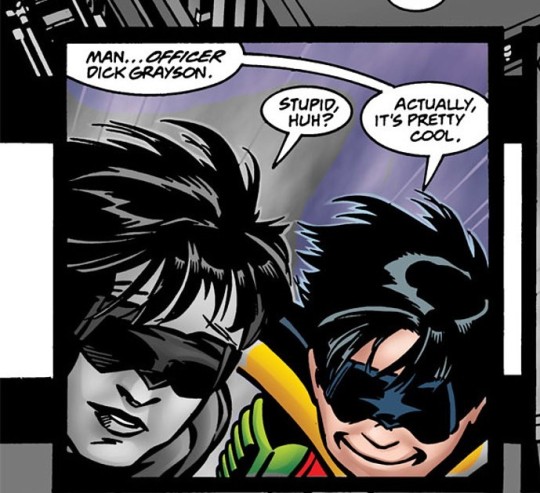
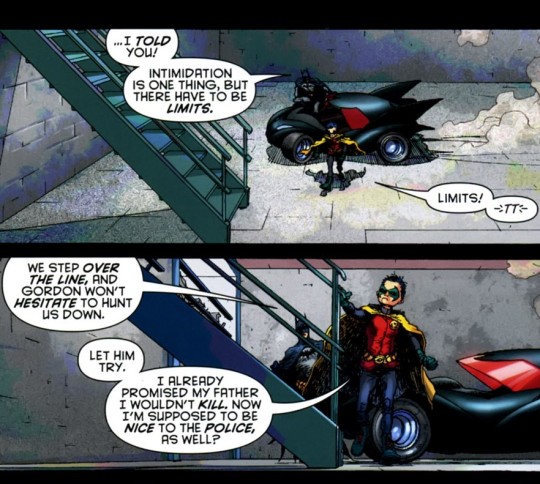
Tim Drake in Nightwing (1996) #25 | Damian Wayne in Batman and Robin (2009) #2
Pick the character that most represents a police officer, according to your own understanding. [more info]
Tim Drake - Robin, Red Robin
Thinks his mentor becoming a police officer is "pretty cool". -- Nightwing (1996) #25
A detective seeks out his help to do police work without a warrant. -- DC Pride: Tim Drake Special AKA Batman: Urban Legends #5
Affinity for surveillance. Future self creates dystopian police state. -- Detective Comics by James Tynion IV, see #935, #970
Anti-shoplifting. -- Robin (1993) #56
Anti-marijuana. Uses hospitalized friend as an example in an anti-marijuana school lecture on what could happen when someone consumes "one joint". -- Batman: Shadow of the Bat #56-58
Tim: "You're part of this team! You're accountable! Especially when you abscond with top-secret government property!" Superboy: "Dude, it was a baby!" Tim: "It was government property!" -- Young Justice: Our Worlds at War
Damian Wayne - Robin
"I already promised my father I wouldn't kill. Now I'm supposed to be nice to the police as well?" -- Batman and Robin (2009) #2
Uses physical intimidation against criminals (under supervision of his adult mentor). -- Batman 2011 #5, Batman: Streets of Gotham #4
Fights the GCPD-backed police commissioner Batman. -- Robin War #1
Constructs secret underground prison to torture and brainwash villains. -- Teen Titans (2016) #20

Detective Comics #935

Detective Comics #970

Batman 2011 #5

DC Pride: Tim Drake Special AKA Batman: Urban Legends #5
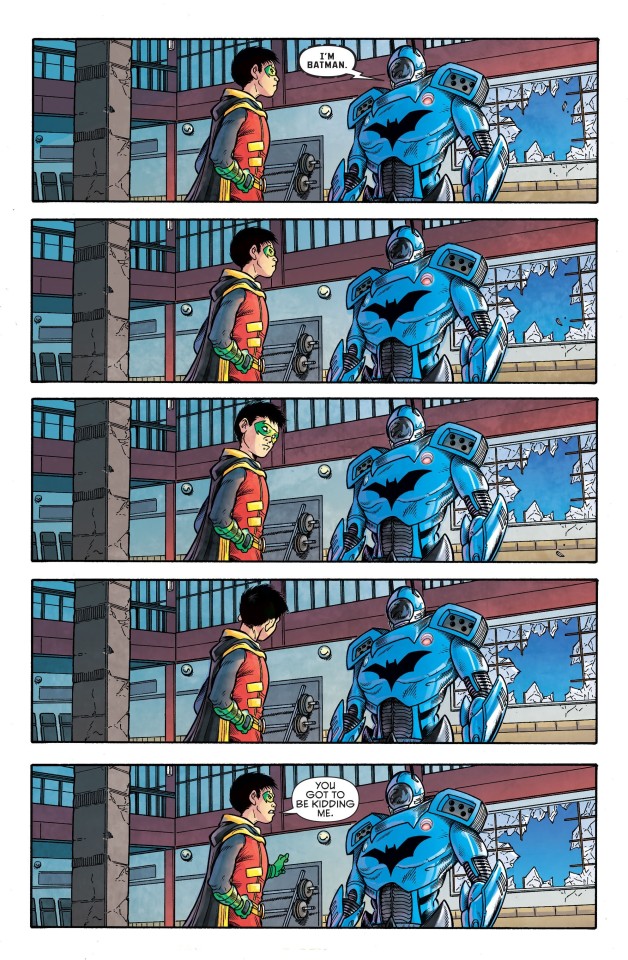
Robin War #1
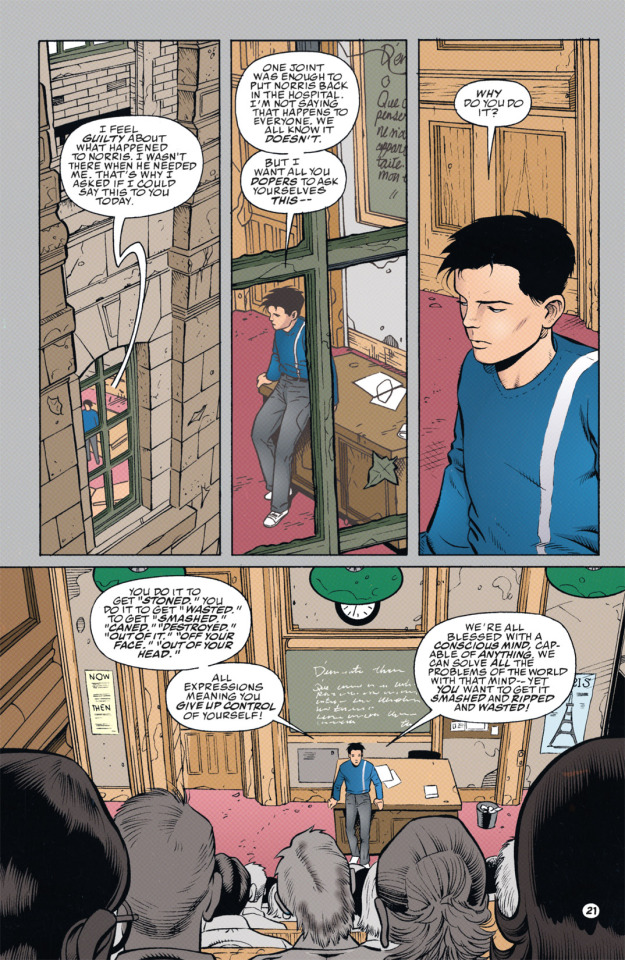

Batman: Shadow of the Bat #58

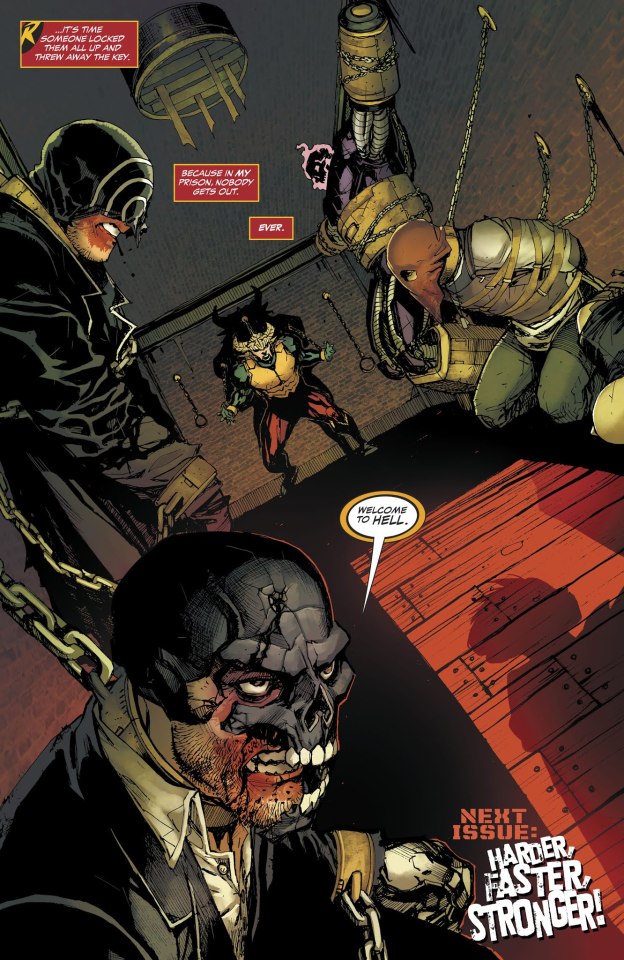
Teen Titans (2016) #20
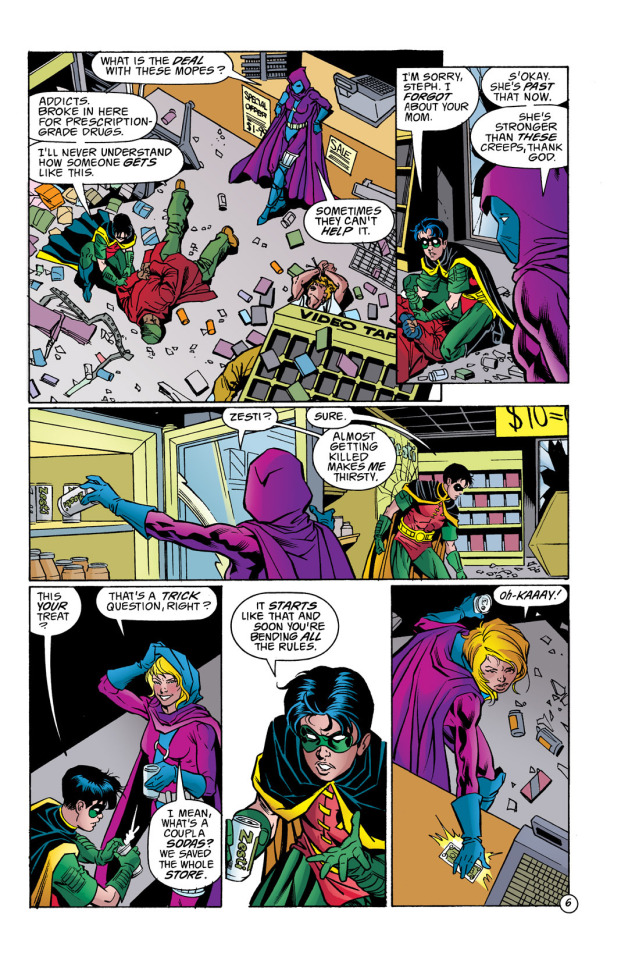
Robin (1993) #56
#damian wayne#tim drake#goodcopbatcop#batboys#batfamily#batfam#gotham city#dc robin#timothy drake#batman comics#robin damian#dc characters#superheroes#comic books#batman fandom#damian wayne al ghul#fandom polls#damian al ghul#robin dc#dc tim drake#red robin dc#robin tim drake#tim drake robin#robin iii#id in alt text#the formatting of the images and all the image descriptions killed me i will not be including more than two images in the posts from now on#from now on if you want to see the evidence and propaganda then you need to check the google docs
37 notes
·
View notes
Text
Okay so I got several notes on my "Things Jason Todd should freak out over that happened while he was dead/in a coma/braindead/gone" post about using it in a timeline EXCEPT I listed those events off the top of my head and didn't actually look up when they happened relative to each other so I know that they weren't in chronological order so I am relisting each of those plus a few new ones in chronological order with issue dates here if anyone actually does want a timeline. If the comment references events that take place some time apart then I listed by whichever happened first. Check the issues listed to figure out when the second event happened. I may edit this post later.
"There's another Mister Miracle? And he's human?" (Mister Miracle Vol.2 #22, December 1990)
"Deathstroke killed Jericho? Damn and I thought Bruce was a shitty dad -" (New Titans #83, February 1992)
"Danny is dead?" (New Titans #84, March 1992)
"Donna had a kid? One that was supposed to grow up to be so evil that an entire group of Titans from the future came back in time to stop him from being born? Kid definitely got it from his dad." (Deathstroke the Terminator #14, September 1992) (Team Titans #1, September 1992)
"Apparently Miriam Delgado is a name I need to add to my list :)" (New Titans #90, September 1992)
"Since when did Deathstroke have a daughter and why is she missing an eye too?" (Deathstroke the Terminator #15, October 1992) (Teen Titans Vol.3 #12, August 2004)
"SUPERMAN DIED HOW THE FUCK DID THIS DOOMSDAY GUY JUST PUNCH SUPERMAN TO DEATH HE'S SUPERMAN." (Superman Vol.2 #75, November 1992)
"Okay what happened to Qurac? Entire countries do not just disappear." (Deathstroke the Terminator #19, February 1993)
"What the fuck do you mean Roy Harper's baby momma nuked it???!! Where did she even get nukes??!!" (Deathstroke the Terminator #19, February 1993)
"Also apparently Superman has a clone now???" (Adventures of Superman #500, June 1993)
"Who the fuck is this Bane guy and how did he break B's back." (Batman Vol.1 #497, July 1993)
"COAST CITY DOESN'T EXIST ANYMORE - WHAT DO YOU MEAN IT DOESN'T EXIST ANYMORE?" (Green Lantern Vol.3 #46, October 1993)
"Hal Jordan became evil?" (Green Lantern Vol.3 #49, February 1994)
"Are the Green Lantern Corps around rn?" (Green Lantern Vol.3 #50, March 1994)
"What the fuck is the speed force." (The Flash Vol.2 #91, June 1994)
"Iris Allen is alive and time travelled here from the future with her grandson apparently??" (The Flash Vol.2 #92, July 1994)
"Dick and Kory broke up???" (New Titans #114, September 1994)
"Is- is Guy Gardner human, or -" (Guy Gardner: Warrior #0, October 1994)
"There's a Green Arrow 2.0 and he's the first one's kid? Poor guy." (Green Arrow Vol.2 #91, November 1994) (Green Arrow Vol.2 #96, April 1995)
"So Green Arrow also died and came back?" (Green Arrow Vol.2 #101, October 1995) (Green Arrow Vol.3 #1 April 2001)
"Wait who the fuck is Neron." (Underworld Unleashed #1, November 1995)
"Blockbuster is smart now?" (Underworld Unleashed #1, November 1995) (Impulse #8, November 1995)
"You're telling me that B had the opportunity to bring me back to life - back to him and he didn't fucking take it?! Yes I know that I was already alive and it was like literally a deal with the devil it's the principle of the matter!" (Underworld Unleashed #2, December 1995)
"Apparently while I was gone Gotham was targeted by a deadly plague, got hit by a giant earthquake, and basically got kicked out of the US?" (Batman: Shadow of the Bat #48, March 1996) (Batman: Shadow of the Bat #73, April 1998) (Detective Comics #729, February 1999)
"Dick moved to Bludhaven and became a fucking cop?" (Nightwing Vol.2 #1 October 1996)(Nightwing Vol.2 #41 March 2000)
"What the fuck do you mean the sun almost got eaten." (The Final Night, November 1996)
"Look is Hal Jordan alive or not." (The Final Night#4, November 1996) (Day of Judgement #5, November 1999) (Green Lantern: Rebirth #4, March 2005)
"So... How old is Aqualad now? Why was he hanging out with Aquaman's dad? Why did that make him older?" (Tempest, November 1996 - February 1997)
"Oh, Aqualad's going by Tempest now? Good to know." (Tempest #2, December 1996)
"Supes got married? Congrats to him but I've met Lois Lane and I know she could do better." (Superman: The Wedding Album, December 1996)
"Martians almost took over the world?" (JLA Vol.1 #1, January 1997)
"Wait Donna's husband and baby died? Damn." (Wonder Woman Vol.2 #121, May 1997)
"The entire population had to run so that the Flash could siphon the energy to run a fucked up Hunger Games/Olympics crossover race set by a pair intergalctic alien gods so they wouldn't Alderaan earth?" (The Flash Vol.2 #138, June 1998)
"Someone actually decided to date the Joker? Is she insane? Don't answer that." (Batman: Harley Quinn, October 1999)
"Aqualad - sorry, Tempest- had a kid too?!" (Aquaman Vol.5 #63, January 2000)
"Flash got married too? IDK who Linda is but congrats to them both too I guess." (The Flash Vol.2 #159, April 2000)
"YOU'RE TELLING ME THAT BASICALLY EVERY HERO GOT THEIR AGE TEMPORARILY FUCKED UP? I NEED PICS ASAP." (Young Justice: Sins of Youth, May 2000)
"The JLA kicked B out and almost fell apart because they found out he had made contingency plans to take em all out? You're telling me they were actually surprised? Old man's paranoid as fuck of course he has contingency plans." (JLA Vol.1 #46, October 2000)
"What's all this about playing baseball to save the earth?" (Young Justice Vol.1 #27, January 2001)
"B and Supes told the rest the JLA their secret identities? I didn't think they had it in them." (JLA Vol.1 #50, February 2001)
"Commish got shot? By who? Are they still alive? I can fix it if they are he's the only cop worth a damn in this city." (Batman Vol.1 #587, March 2001)
"Y'all went to war with a guy trying to literally hollow out the universe? damn." (JLA: Our Worlds at War, September 2001)
"So Dickie finally got adopted." (Batman: Gotham Knights #21, November 2001)
"B got arrested and put on trial for murder? Imao." (Batman: the 10-cent Adventure, March 2002)
"WAIT HE WAS FRAMED BY BATGIRL 3.0'S DAD?" (Batman Vol.1 #605, September 2002)
"I'm sorry, Pretender's team led a bunch of other heroes, most of whom I've never even heard of, to invade the sovereign nation of Zandia? Like, I know it's just a nation for criminals to hang out and avoid justice, but still." (Young Justice Vol.1 #50, December 2002)
"One of the Pretender's friends was a ghost that was actually an interdimensional portal to Apokolips?" (Young Justice Vol.1 #55, May 2003)
"DONNA DIED AND CAME BACK TOO?" (Titans/Young Justice: Graduation Day #3, August 2003) (DC Special: The Return of Donna Troy, August 2005)
"Somehow the entire population got mind wiped and no longer remembers that Wally West is the Flash or that his identity used to be public. hm." (The Flash Vol.2 #200, September 2003)
"Jericho is alive???" (Teen Titans Vol.3 #2, October 2003)
"Is Jericho evil or not?" (Teen Titans Vol.3 #2, October 2003) (Teen Titans Vol.3 #12, August 2004)
"Raven is also alive and a teenager now???" (Teen Titans Vol.3 #3, November 2003)
"Blockbuster murdere- Catalina Flores? Ah, another name to add to my list, I see." (Nightwing Vol 2 #93, July 2004)
"The Atom's ex killed the Elongated Man's wife and hired Captain Boomerang to end the Pretender's dad? Damn." (Identity Crisis #1, August 2004) (Identity Crisis #5, December 2004)
"Why did Gotham become a war zone- oh it was one of B's contingencies? That tracks. Wait another Robin died? I don't care if she wasn't actually using the name Robin when she died what the fuck B?" (Detective Comics Vol.1 #797, October 2004) (Batman Vol.1 #633, December 2004)
"You were actually on to something working with this Orpheus guy but of course he got murdered too-" (Batman: Gotham Knights #57, November 2004)
"How many Green Lanterns are there anyways?" (Green Lantern: Rebirth, December 2004-May 2005)
"So Guy Gardener is human now, right?" (Green Lantern: Rebirth #2, January 2005)
"EDDIE IS A SUPERHERO NOW?" (Teen Titans Vol.3 #42, February 2007) [yeah I messed up on this one, Eddie didn't get his powers until post-Infinite Crisis]
Here's the link to the original post btw:
119 notes
·
View notes
Text
Franca "Major" Lorenzetti Biography
Basic Information
Citizenship: British Italian
Language(s): English, Italian
Place of Birth: Yorkshire, England.
Date of Birth: 01/07/1993
Occupation: Combat Medical Technician, 141
Status: Alive
Physical Appearance
Eyes: Green
Hair: Brown
Skin: Olive White
Tattoo(s): she has 2. Right scapula, which is a greyscale death head moth and the other is on her outer left ankle. This is of a rubber ducky wearing a military helmet and has a sergeant rank pinned to its chest. She lost a bet and wasn’t about to back down from having it done.
Scar(s): over the left part of her stomach - gained during a tour of Afghanistan.
Face Claim: Ana De Armas
Description: Franca is the tallest female in her immediate family, standing at 5 foot 7 inches tall. She looks more like her mother, with almond shaped eyes that slightly curves upwards at the outer edge, framed by thick, long black lashes. Her brows are full, long and shaped naturally slender. There is a part of her left brow, towards the forefront that has a slightly faded spot caused by a birthmark. It can no longer be seen, though it was once quite red in early childhood.
Her eyes are a deep green with a straight, thin nose, with the tip slightly button like. Her lips are more to the thinning side, deep pink in colour and she has a straight set of teeth from wearing braces as a teen.
When not in her military uniform, she can be caught sporting a mix of hoodies, jackets, jeans, joggers, trainers, boots or gym wear. You’ll never really catch her wearing makeup or dressing up overly feminine as dresses make her uncomfortable. She does dress up occasionally, but only for events or special occasions.
She has a well-toned build, strong, but she tends to focus her fitness on stamina and endurance strength, rather than brute force.
Personality
Like(s): coffee, the colours green and lavender, her job, dogs, animals in general, adrenaline rushes, motorbikes, amaretto, chocolate covered marzipan, meaningful conversation none of that smalltalk bullshit, saying enough with a few words, sketching people when they don’t know, watching cop shows, listening to classical guitar and piano, creative swearing, cooking for others given the chance.
Dislike(s): slow conversation, small talk, egotistical males, her father, being treated like she is stupid, being spoken down to, being called ‘doll’ or ‘honey’, spiders and crickets, bland foods, being sick, having people fuss over her, having random people touch her without her permission or without warning, cold weather, baths, the sound of people chewing, the sound of ticking clocks.
Strength(s): logical, firm, quick thinker, resourceful, trustworthy and loyal.
Weakness: risky, sometimes quick to anger, sometimes can deviate from given orders, self-sacrificing at times, overcautious with trust, guarded in personal affairs, can be judgemental.
Relationships
Parent(s): Antonio and Alessandra Lorenzetti
Sibling(s): Vincenzo (younger brother) and Carlotta (older sister)
Friend(s): Gaz, Soap
Spouse(s): potentially Ghost
Children: none yet
Biography
Franca was born in Northern England to Italian born parents, Antonio and Alessandra. Most of her childhood memories are consumed by the strictness of her conservative, religious father. His views on what a woman should be was very traditional and fought daily to ingrain the ideology into his daughters; that women were meant to serve their husband and be a good housewife.
He told his daughters that he expected them to marry, not to work, and be a good wife to his future son-in-laws. While Franca's mother and sister, Carlotta, were content with following along with this mindset, she did not. Her father was just as strict on her younger brother, feeding him that he was to grow up and find a wife, work for his family and be the 'bread winner'.
Now Franca had no issue with someone deciding to be a housewife, but she knew that kind of life was not for her. She was always drawn to hobbies that were deemed 'for boys' and were 'not lady-like'.
When Franca turned 16, she had filled out an application form to join the British Army, taking this decision to her parents. In response, her father grew furious, berating her. The arguments that followed were brutal, abusive and only proved to push Franca further into her decision to join the military.
These arguments were fought solely alone, as her mother and older sister were too scared to stand up against her father and her younger brother was too young to understand what was happening.
During one of these arguments, Antonio stated that if she decided to go through with her decision to join that she would be classed as dead to the family, that she would amount to nothing, end up on the street and be disgraced. In a fit of anger, a response to his words, Franca said fine by me. She would rather be dead to them and actually try and do something with her life, than to end up miserable as a housewife because it just wasn't the life she wanted.
She sends off her application.
Franca completes her basic training, then goes on to complete her training to become a Combat Medic. She passes with flying colours and the favour of her instructors.
Throughout multiple tours in Afghanistan, Franca is attached to different regiments as a medic. It is one of these tours, where she is attached to the Infantry, that Franca's actions got her on Captain Price's radar when he eventually comes to decide who he wants for Taskforce 141.
13 notes
·
View notes
Text
we're all the worst kind of chrome samurai now

AVAILABLE NOW on ITCH.IO!
The year is 2023 and it is the future.
Corporations rule the streets of the Infinite City. Skyscrapers blot out the blackened sky. The rain is constant and smells like sulfide. Bosozoku patrol the alleys, protests against the Black Shakes fill the streets, and the media doesn't give a damn anymore.
You are one of the chosen, to be sure; one of the few, to be pure.
Make your way through the dystopian hellfuture.
Steal to make your living. Build a new future for yourself.
You're gonna get out of this or you're going to die trying.
Play as a COP, CORPO, FIXER, MEDIA, NOMAD, ROCKER, SOLO or TECH.
Carve out a name for yourself.
Stick it to the bastards once and for all.
A VIEW FROM THE EDGE 2023 is a retroclone of the classic 1993/2020 edition of the classic cyberpunk roleplaying game. In this edition, we have strived to keep all rules and tables compatible with the original release but updated the layout and design to modern standards.
GET IT HERE!
22 notes
·
View notes
Text
watchlist for the rest of the year:
anita mui's works to commemorate her 20th deathversary 🫡
executioners (1993) (will be up tmrw on my yt if it doesnt get taken down! sequel to the heroic trio (1993))
rouge (1988) (also starring her bestie, leslie cheung <3)
wu yen (2001)
anita (2022) (biopic released last year, it has mixed reviews but i wanna check it for myself)
finishing andy's filmography (not including cameos):
brothers (2007)
look for a star (2009)
future x-cops (2010)
founding of a party (2011) (technically a rewatch LOL)
cold war (2012) (might fuck around and add 2 as well since 3 is coming out... soon? ish)
switch (2013) (notoriously bad so im looking forward to it <3)
firestorm (2013)
my beloved bodyguard (2016)
the adventurers (2017)
fagara (2019) (yes im aware this is technically a cameo role but im in love w sammi cheng so it works out <3)
documentaries starring andy:
keep rolling (2020), about ann hui's body of work; might push this back since i do want to watch more of her films first tbh
boundless (2013), about johnnie to's body of work; same as above, I've seen more of johnnie to's stuff but he's also way more prolific and most of his more high profile stuff i havent touched yet
4 notes
·
View notes
Text
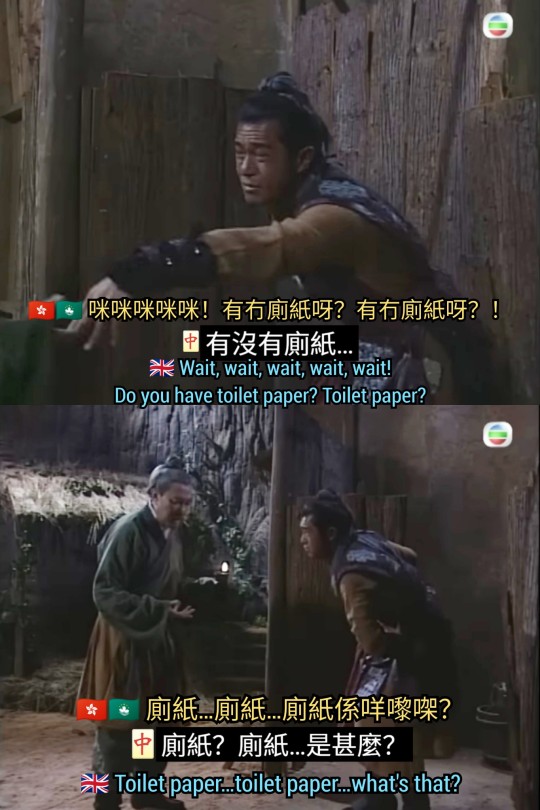
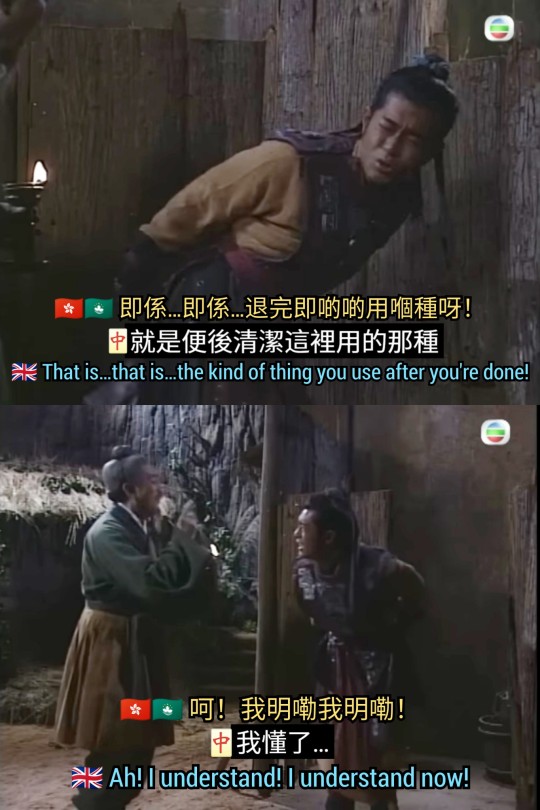

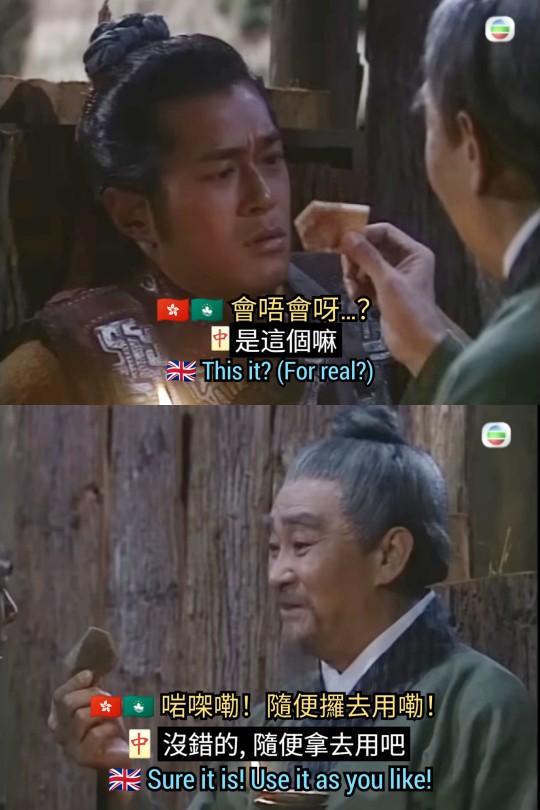
I got reminded of this scene from 《尋秦記》 (2001) ↑…
as I was watching Demolition Man (1993) ↓ and its “seashells” scene recently!
Context (for anyone who hasn't watched either):
In 《尋秦記》 (A Step into the Past), a cop (Louis Koo) from the future (2001) is zapped back in time to a little before the establishment of the 秦朝 (Qin Dynasty, 221 BC – 206 BC), where he finds toilet habits to be not what he expected…
Demolition Man has this cop (Sylvester Stallone) who was cryogenically frozen in a dystopian world in 1996 and wakes up in the year 2032 where the world's (or at least the US of A) toilet habits have changed drastically.
So wait, does that mean the toilet situation in the world of Demolition Man is no better than the primitive times of the (almost) Qin Dynasty? 😹
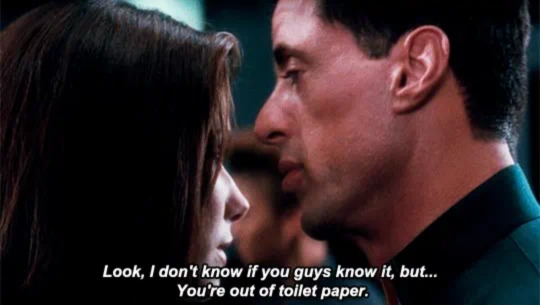
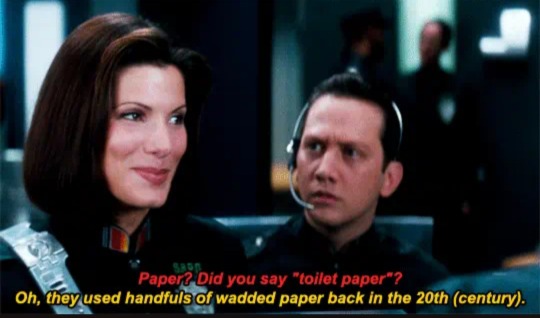

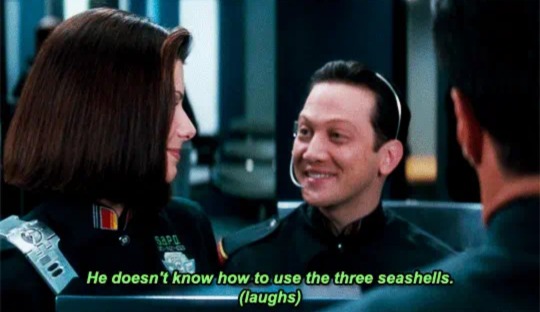
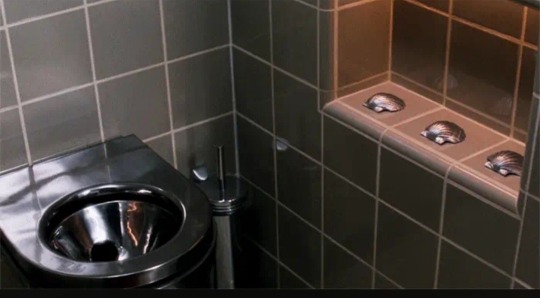
P.S.: I still have no idea how the piece of what looks like a broken piece of pottery, or the “seashells” actually work! 😹
#I usually don't like Stallone films because most of them bore me but this is#One of the exceptions!#Demolition Man#Sylvester Stallone#Sandra Bullock#Western Movies#Movies#A Step into the Past#Ep 2#Louis Koo#TVB#HK Drama#Cantonese#Mandarin#Chinese Language#Language
5 notes
·
View notes
Text
This Month in History - December
There are quite a few landmark anniversaries I'm celebrating this month:
Dec. 2, 1988: The Naked Gun opens
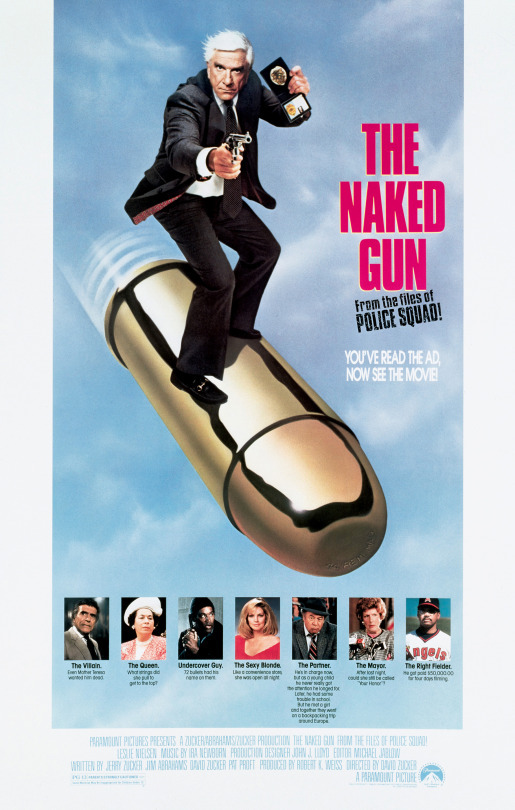
In Dec. 1988, the first of Zucker-Abraham-Zucker's cop spoof was released. Here is my piece I got in 2018. Happy 35 NG!
Dec. 5, 1973: Band on the Run released
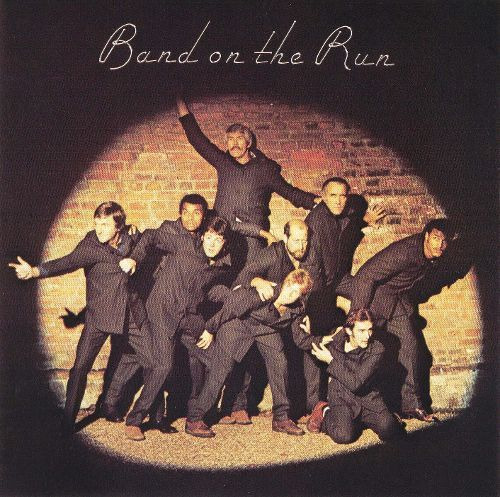
In Dec. 1973, Paul McCartney and Wings best album (possibly the best Non-Beatle album he did) was released. Here is my piece I wrote in 2018. Happy 50th BOTR!
Dec. 6, 1968: Beggars Banquet released
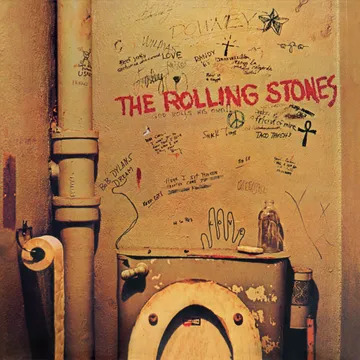
In Dec. 1968, the 9th U.S. album from The Rolling Stones. Earlier this year I got to review the Record Store Day reissue of the album. I'd definitely put this up there with Let It Bleed and Exile on Main Street in the pantheon of Classic Stones albums. Happy 55th BB!
Dec. 6, 2013: Inside Llewyn Davis opens
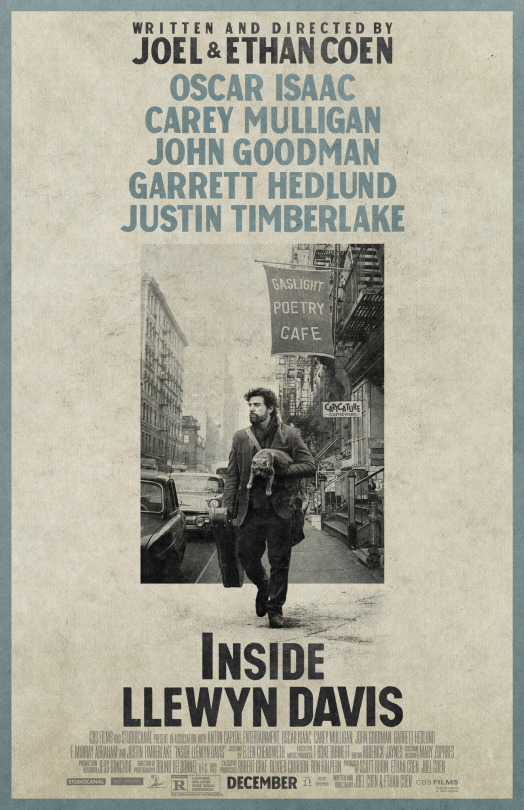
In Dec. 2013, the Coen Brothers' criminally underrated folk musician epic was released. Here is my piece I wrote in 2018. Happy 10 ILD!
Dec. 10, 1993: Wayne's World 2 opens
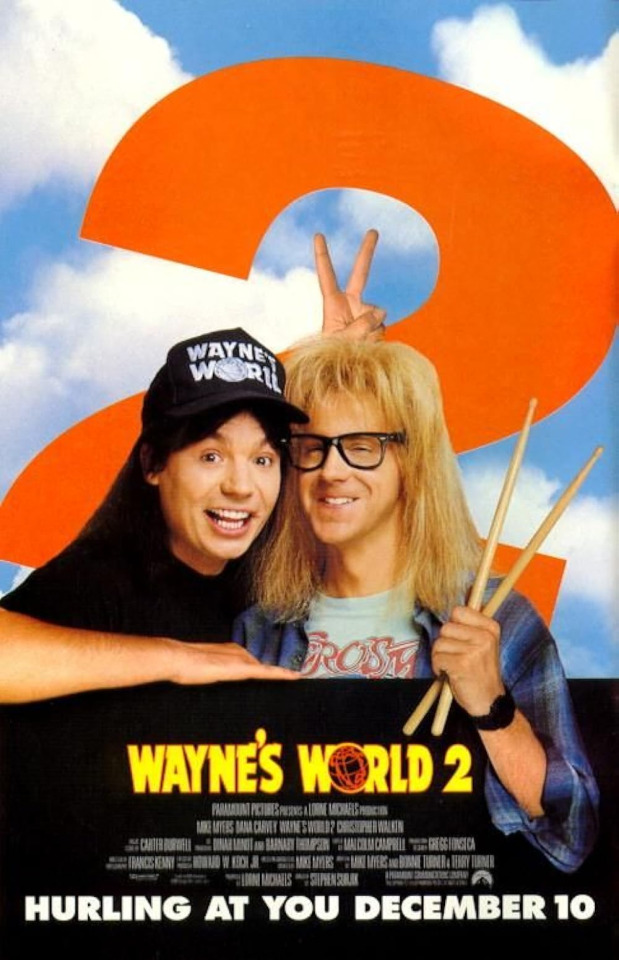
In Dec. 1993, the sequel to Wayne's World was released! It might not be as loved as the original, but it is better than people think. I wrote about this in 2018 and director Stephen Surjik wrote me back with some thoughts. In 2022, I saw it on the big screen at Nice, a Fest. Happy 30th WW2!
Dec. 10, 2003: Big Fish opens

In Dec. 2003, one of Tim Burton's most underrated movies was released. Taking Burton's visual style and combining it with a family drama with fantasy elements was a gamble that paid off. It's something that feels new each time I've seen it since. Happy 20th Big Fish!
Dec. 11, 1998: Rushmore and A Simple Plan both open
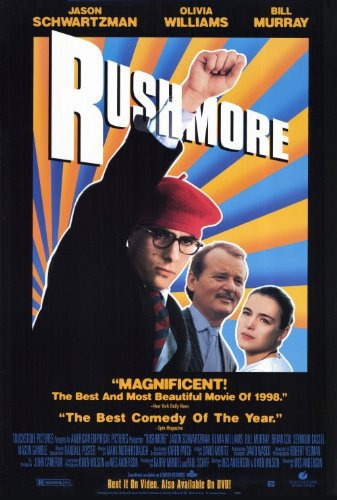
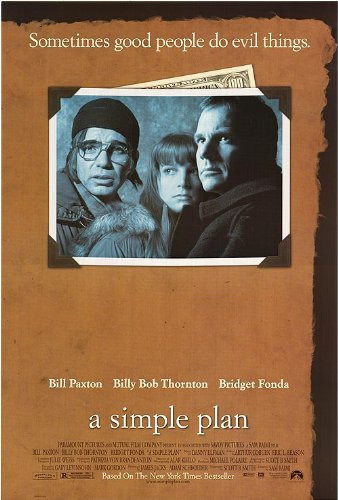
In Dec. 1998, two of my favorite movies from that year opened on the same day. Here is my piece I wrote about Wes Anderson's film and Sam Raimi's film. Happy 25th Rushmore an ASP!
Dec. 12, 1973: The Last Detail opens
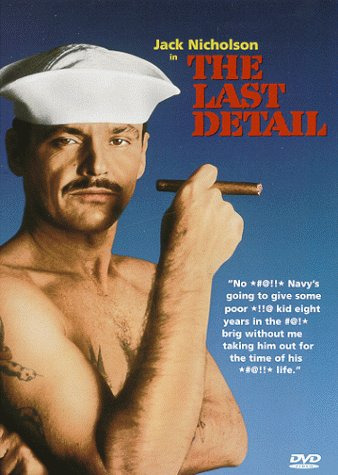
In Dec. 1973, Hal Ashby (who was on a roll at the time) had one of his best released. It was one of the great movies of the 70s. It was also one of my Top 5 Boston Movies of All Time! Jack Nicholson was in rare form as he and Otis Young played Navy men transporting younger sailor Randy Quaid to the NH Navy prison and showing him a good time along the way. Happy 50th TLD!
Dec. 14, 1988: I'm Gonna Git You Sucka opens
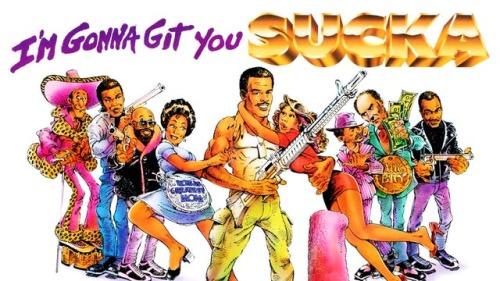
In Dec. 1988, Keenan Ivory Wayans' 70s LOL comedy opened. Here is my piece I wrote in 2018. Happy 35th IGGYS!
Dec. 14, 2018: Spider-Man: Into the Spider-Verse opens
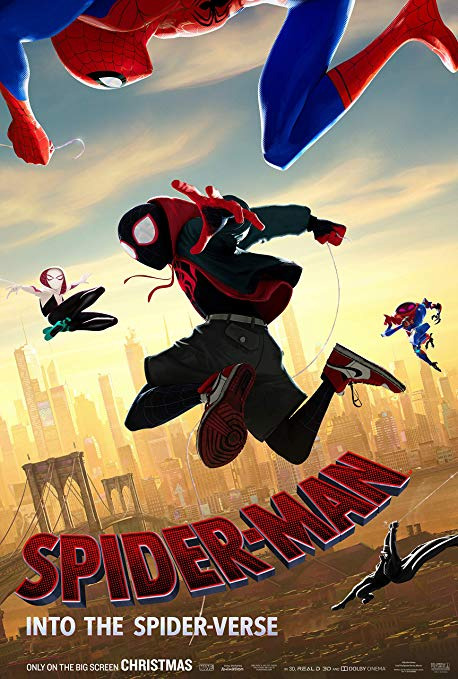
In Dec. 2018 one of the best Spider-Man movies was released. I actually named it my #7 Movie of 2018! By diving into the Miles Morales storyline, they took the Spider-Man story we all know so well and made it seem new again. Just last Summer they released the awesome sequel: Spider-Man: Across the Spider-Verse was released. Happy 5 S-M:ITS-V!
Dec. 15, 1978: Superman opens
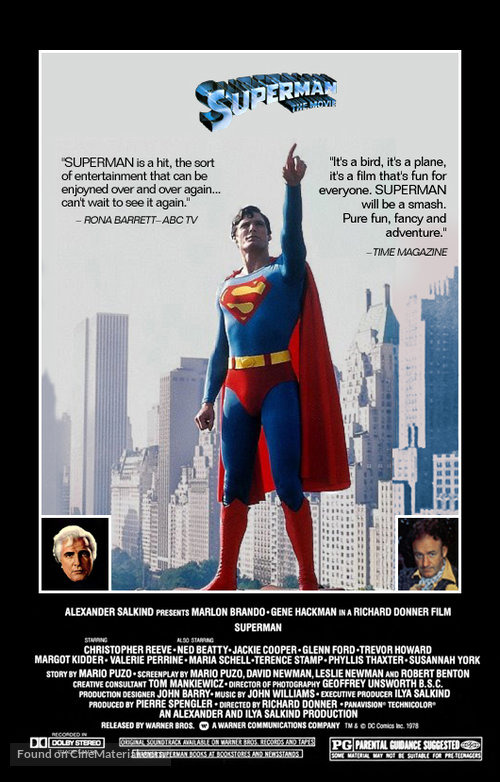
Speaking of super hero movies: In Dec. 1978 one of my favorite big screen Superman movies was released. Here is my piece I wrote in 2018. Happy 45th Superman!
Dec. 15, 1993: Schindler's List opens
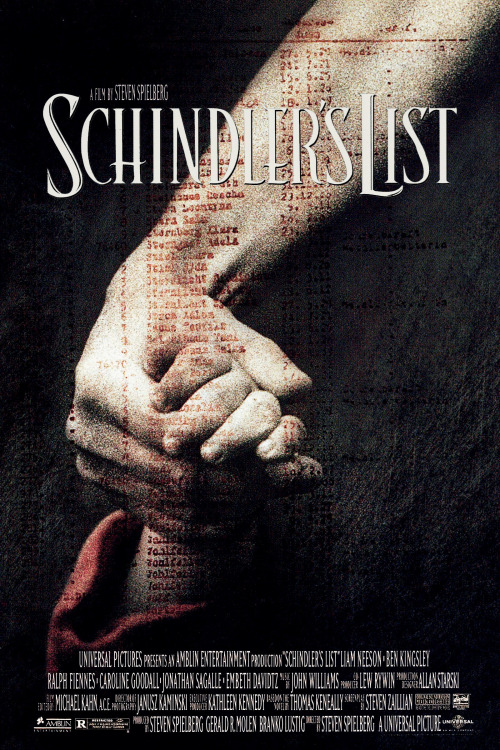
In Dec. 1993, one of Steven Spielberg's finest works was released. Here is my piece I wrote in 2018. Happy 30th SL!
Dec. 16, 1988: Rain Man opens
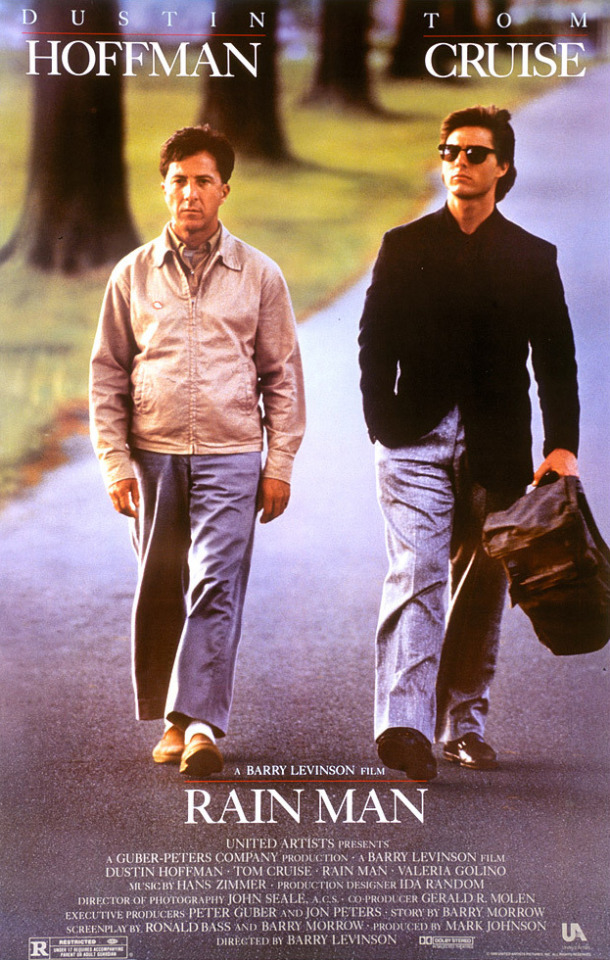
In Dec. 1988, the Oscar-winning Best Picture and biggest grossing film of 1988 was released. With the exception of parodies (i.e. The Hangover's Vegas gambling scene), nobody talks about this as much. The road movie of long lost brothers one autistic (Dustin Hoffman) and the other selfish used-car guy (Tom Cruise) was actually quite touching. Sure it was the 80s feel-good movie era and whatnot, but the performances were among both actors' best. Happy 35 RM!
Dec. 17, 1973: Sleeper opens
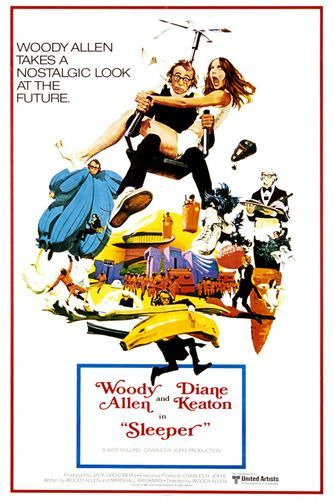
In Dec. 1973, one of the funniest movies ever made about the future was released. Woody Allen was in his prime when he played a man who is cryogenically frozen in 1973 and is defrosted 200 years later. This is definitely one of his funniest ones. Happy 50th Sleeper!
Dec. 17, 1993: The State premieres
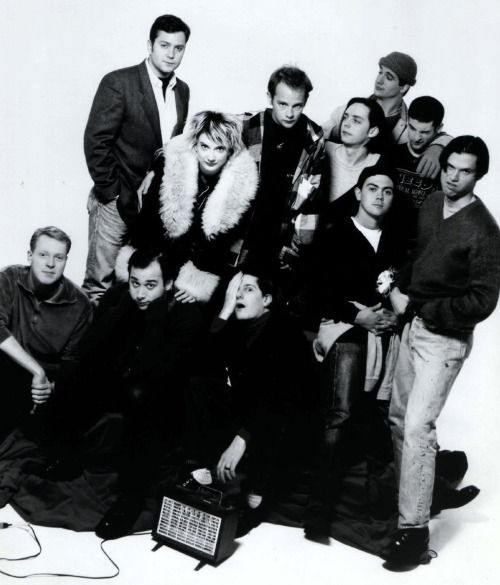
In Dec. 1993, the now-legendary sketch comedy series of NYC comedy group The State premiered on MTV. Here is my piece I wrote in 2018. Earlier this Fall, I actually got to see The State reunion tour when it was in Boston. Happy 30th TS!
Dec. 17, 2008: The Wrestler opens
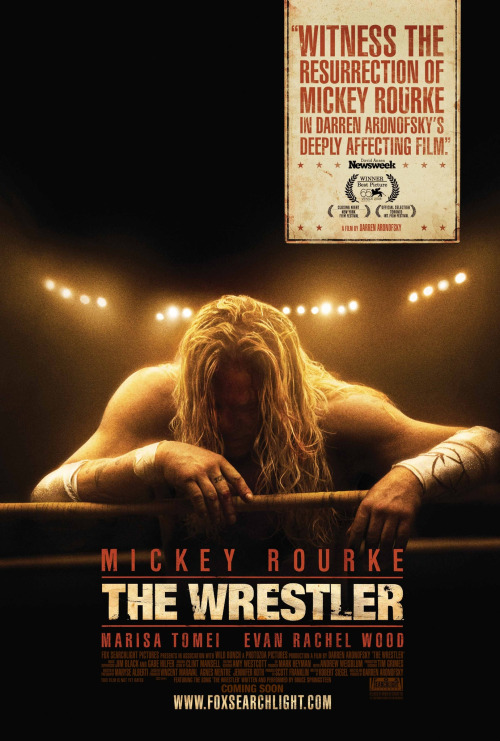
In Dec. 2008 Darren Aaronofsky's greatest movie was released. Here is my piece I wrote in 2018. Happy 15 TW!
Dec. 18, 2013: Her opens
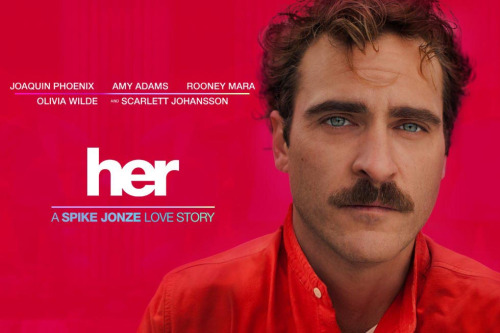
In Dec. 2013, Spike Jonze greatest movie was released! Here is my piece I wrote in 2018. Happy 10 Her!
#film geek#music nerd#this month in history#the naked gun#zucker abraham zucker#paul mccartney#wings#the rolling stones#inside llewyn davis#coen brothers#wayne's world 2#stephen surjik#big fish#tim burton#rushmore#wes anderson#a simple plan#sam raimi#the last detail#hal ashby#i'm gonna git you sucka#keenan ivory wayans#superman#richard donner#schindler's list#steven spielberg#rain man#barry levinson#sleeper#woody allen
2 notes
·
View notes
Text
On a mild late spring night in 1993, a police officer in Berkeley, California, stopped a black-and-yellow two-door Chevy for a traffic violation. The officer was twenty-one years old, white. He was working a midnight shift in a lower-income neighborhood adjacent to North Oakland that had seen more than its share of violence, much of it linked to the trade in crack cocaine. The year before, 12 people were murdered in Berkeley, then a city of 103,000. Nearly 900 were robbed and more than 700 were victims of aggravated assault, putting Berkeley’s violent crime rate at twice the national average.
At 1:30 a.m., the officer was driving north on a mixed commercial and residential street. A block ahead, the Chevy was stopped at a red light in the left turn lane. Not waiting for the light to turn green, the driver lurched forward, veering out of the lane to continue straight. This was hardly a serious offense. The streets were empty, no oncoming traffic. Still, it was illegal. The officer hit his overhead lights. “Adam 13, 11-95,” he called on the radio. Car stop. One of a dozen he’d probably make that night.
Tyre Nichols’ Family Sues Memphis Police Over His Death
Posted 1 Month Ago

Except the driver accelerated. The officer couldn’t tell whether he was trying to get away or hadn’t noticed the police car.Nor could the officer know that the events to follow would speak directly to one of the most pressing issues of our time today, three years after the murder of George Floyd by former Minneapolis police officer Derek Chauvin: how to fix the police, a troubled American institution. Although many police officers – most, perhaps – do their difficult jobs admirably and well, incidents of egregious abuse are all too common and police reform has proved an elusive goal.

The solution has been apparent for decades, the major barrier to its implementation politicians and police chiefs who lack the vision and commitment necessary to carry it off. Cop culture, which the Berkeley officer was in the grips of, needs an overhaul.
At the next street, the Chevy went left. The officer followed but the car had vanished. The only place it could have gone was Stanton, a small street that branched off, and as the officer drove past it, he caught sight of the car’s brake lights. He slammed on his own brakes, backed up, and barreled down Stanton until he reached the Chevy, which had parked in the driveway of a stucco house.
Like most small- to midsize police agencies, the Berkeley police department, with 180 cops in the early 1990s, didn’t have its own police academy. When the officer joined as a recruit, he was sent to the academy run by the city of Sacramento, held on the grounds where the California Highway Patrol trained. There the future men and women of law enforcement took their morning runs; the recruits all idealistic in their own way, driven to scratch some inner itch by pinning on a badge. Trainers taught them that car stops can be dangerous, even for minor infractions. Usually drivers and passengers are cooperative. But you never know—you might pull over someone with a felony warrant who’ll do anything to keep from getting arrested, or a dealer with a stash and a gun hidden under the front seat, or a guy with anger issues looking for a fight.
Read More: How to Reduce Deaths at the Hands of Police
Posters hung in the gymnasium, where the recruits practiced defensive tactics. One showed the CHP Survival Creed: “The will to live, to survive the attack, must be uppermost in every officer’s mind. Fight back against all odds. Don’t let them kill you on some dirty freeway.”
Sacramento police academy recruits were trained to be on high alert when stopping cars. The cardinal rules were that you had to keep everyone contained, and hands had to be visible at all times.
There was no containment happening on Stanton Street. As the officer pulled up, a young man about his age, Black with cornrows, stepped from the passenger side of the Chevy. He was shirtless, with pale blue shorts and blue Nikes. The driver had stayed at the wheel. The officer yelled to the passenger, “Get back in the car and close the door!”
The man said flatly, “Why?”
“I’m stopping this car. Get back in and close the door.”
The man ignored him. He began walking toward the porch of the house, only a few paces away. While trying to keep his eye on the driver, the officer ran to the passenger and put his hand on his shoulder. The man flung it off. “If you touch me again, I’m going to kick your ass,” he said.
The two were face-to-face. The man had threatened a cop; he was going to jail.
“Get on the ground, you’re under arrest,” the officer ordered. He wanted the man seated or prostrate so it would be harder for him to make good on his threat. The officer had followed every twist of the Rodney King case, but he wasn’t thinking about the symbolism of a white police officer ordering a Black man to the ground. He was thinking: if this guy’s willing to fight rather than sit in a car while I write his buddy a ticket, there must be something he doesn’t want me to know or find. His other thought was, don’t let them kill you on some dirty freeway.
He called for cover.
The driver, also Black and in his twenties, was out of the car now, too. The passenger again made a move toward the porch. This time, the officer grabbed him, pushing him against the hood of the Chevy, intending to apply handcuffs. The man pulled loose and swung at the officer, clocking him on his cheek. The officer stumbled a couple of steps and drew his baton. Few police had access to Tasers back then (the LAPD officers who assaulted Rodney King were an exception), so batons were the best nonlethal option.
Now the officer upped his radioed request to “Code 3” cover—for an emergency. Sirens kicked on in the distance along with the intermittent beeping on police frequencies that signals trouble.
“Get on the ground! You’re under arrest!” the officer kept repeating, thwacking the passenger in his leg while the man stood ready to box. He grabbed the baton, but the officer wrested it back and hit him again in the leg, then once in the abdomen, a jab he’d been taught in defensive tactics.
His partner from the next beat over came running to cuff the driver. Meanwhile, an older couple had emerged from the house—the passenger’s parents, it would later turn out—and were trying to restrain their son. The officer saw why: he was holding a sizable rock over his head and was about to throw it.
A third cop arrived and rushed to help arrest the driver. The first officer unholstered his handgun, a stainless steel .40 caliber Smith & Wesson, and pointed it at the rock-wielding passenger, lining him up in his sights so he’d have a clean shot. “Put the rock down!” he screamed. After a tense moment, the man did as he was ordered. The officer wasn’t faced with the choice of shooting him in front of his parents or taking a rock to the head.
That Berkeley officer was me.
We never figured out why the passenger had fought. He had an arrest record but wasn’t on probation or parole. He had no warrants and no contraband on him. He’d been drinking but wasn’t drunk. Taken into custody, all he would say was, “I’ll be out, Gross. I’ll find you.”
The stop that night on Stanton Street should never have escalated as it did; the outcome could have been horrific. The passenger wasn’t blameless. He should have gotten back in the car when I asked. He shouldn’t have threatened me or punched me in the face or tried to throw a rock. But I wasn’t blameless either. Nor was the police institution that molded me into the cop I was.
As a rookie, I checked all the right boxes. I was born and raised in the Berkeley area and would be policing my hometown. I was educated. I was young but not completely inexperienced: I’d worked part-time for several police agencies while in college, including as a dispatcher. I had a clean record. I’d gone into policing with the best of intentions, to help people and make the community safer. And yet there I was, gun in hand, fighting with a young Black man over what? Over nothing, really.
What went wrong? I served as a Berkeley police officer for eleven months before quitting and going to graduate school to get a PhD in sociology, looking for answers to questions just like that. I’ve been a social scientist for more than two decades now, and I’ve thought often about the Stanton Street fight with a mixture of guilt, sadness, and dismay.
At Colby College in Maine, where I teach courses about the police, I sometimes assess proposals for police reform by asking whether they would have prevented the kind of escalation that occurred. Could the whole incident have been avoided if my training had been different? If the department had different policies in place? If the police academy hadn’t taught me to be paranoid about car stops, perhaps I wouldn’t have perceived a passenger walking away as such a threat. If California had mandated meaningful de-escalation training for officers, maybe I would have thought to use a calmer tone or to say something less hostile than “get on the ground.” Maybe I would have retreated after the man threatened me and waited for the arrival of more officers so that we could have arrested him safely through sheer strength of numbers. If department policy had established that lethal force could be used only when there was absolutely no alternative, maybe I would have ducked for cover when it looked like rocks were about to fly instead of drawing my weapon.
Maybe. But probably not. You can train and rewrite policy all day long, but done in isolation, that won’t get you very far. If you’ve got a department full of cops who think of themselves as aggressive crime fighters locked in a life-or-death struggle against the forces of evil— which is how many officers saw themselves, even in liberal, educated Berkeley—then alienation and resentment are bound to spread in heavily policed neighborhoods. In the heat of the moment, you won’t see police backing down.
Policy change is crucially important. But to fix policing, we need to change cop culture: the values, beliefs, and assumptions, the worldview of those in law enforcement. Right now, not enough people are talking about how to do that.
In the wake of the massive Black Lives Matter protests that followed the death of Mr. Floyd, a Vox/Data for Progress poll found that large majorities of likely voters supported such police reform ideas as mandatory use of body cameras, collecting better data on use of force, and banning choke holds. Likewise, a CNN poll found that a mere 14 percent of American adults believed that “policing works pretty well as it is,” and 53 percent favored major changes to the institution, with the remaining 32 percent preferring smaller-scale reforms.
Politicians at the federal, state, and local levels (primarily on the Democratic side of the aisle) tried to address this demand for change. Federal legislation (ultimately stalled in the Senate) sought to forbid choke holds and “no-knock” warrants, reduce liability protections for police officers, require implicit bias training, and much more. States, for their part, upped de-escalation training, instructed officers to intervene if they see their peers engage in misconduct, and changed laws governing the use of lethal force. Cities increased citizen oversight of police operations, pulled police out of schools, and even prohibited police officers from doing low-level traffic enforcement.
Yet whether well-conceived or not, each of these plans for reform will quickly run up against a limit: the aggressive culture of policing that characterizes many American departments. That culture prioritizes above all tactical safety, putting bad guys behind bars, loyalty to other cops, and not taking flak from anyone on the street. Policy changes perceived to be at odds with those values—basically, anything that constrains the options cops have in dealing with what they see as dangerous people and situations—will be resisted and undermined at every turn.
We’ve been here before. After the 2014 death of Michael Brown in Ferguson, Missouri, and the subsequent protests and unrest, President Obama assembled a task force charged with developing a vision for policing in the twenty-first century. The task force issued policy recommendations, but its central insight was that policy change alone isn’t enough to ensure good policing. “There’s an old saying,” the task force noted: “‘Organizational culture eats policy for lunch.’” “Any law enforcement organization can make great rules and policies,” the report continued, “but if policies conflict with the existing culture, they will not be institutionalized and behavior will not change.” The reason for this is simple: in policing “the vast majority of an officer’s work is done independently outside the immediate oversight of a supervisor.” Thus “consistent enforcement of rules that conflict with . . . culture . . . is nearly impossible.”
Despite the report’s emphasis, proposals for reform today typically aim at regulating or limiting the power of the police, not changing police culture. Politicians and pundits talk occasionally about the need for law enforcement officers to view themselves as “guardians” rather than “warriors,” but it’s difficult to know what that distinction entails, let alone how agencies could move in such a direction. It’s as though policy makers can’t imagine what ethical, effective, democratic policing might look like.
But the culture of policing can be transformed. Three unusual police departments, dedicated to replacing the aggressive crime fighter with something different and better, have worked to come up with healthier, more socially responsible models of what it means to be a good cop. Many police forces promise change; these three—in Stockton, California, Longmont, Colorado, and LaGrange, Georgia—are walking the walk. The chiefs in those agencies and the officers and detectives who work for them have invaluable lessons to teach all of us on the importance of leadership, creativity, perseverance, and the involvement of everyday citizens when it comes to changing how police officers approach their job. These cops also have remarkable personal stories to tell, stories that shed light on the real world of American policing, which bears little resemblance to its portrayal by political partisans of the left or right.
The challenges this country faces in getting the professional, equitable, and humane policing it needs are formidable. The aggressive culture of policing I encountered thirty years ago prevails in many departments, and racial inequities are entrenched.
Amid national outrage about police abuse, the temptation has arisen to either write off policing or impose a plethora of legal and policy restraints to bring police into line. But we can’t write off the police, not in the foreseeable future. And while restraints on police behavior are needed, public institutions like the police need more than rules to function effectively. They also require an animating spirit, a culture, one that offers employees a sense of mission, purpose, and identity, and that steers them toward doing the right thing. Changing cop culture must become a new national priority.
#3 Years After George Floyd's Murder#Cop Culture Still Hasn't Changed#acab#policing in america#police culture#systemic racism#profiling#racism#racist profiling in policing#Black Lives Matter#george floyd#protest
4 notes
·
View notes
Text
4 notes
·
View notes
Text
Review: Demolition Man (1993)
Demolition Man (1993)
Rated R for non-stop action violence, and for strong language
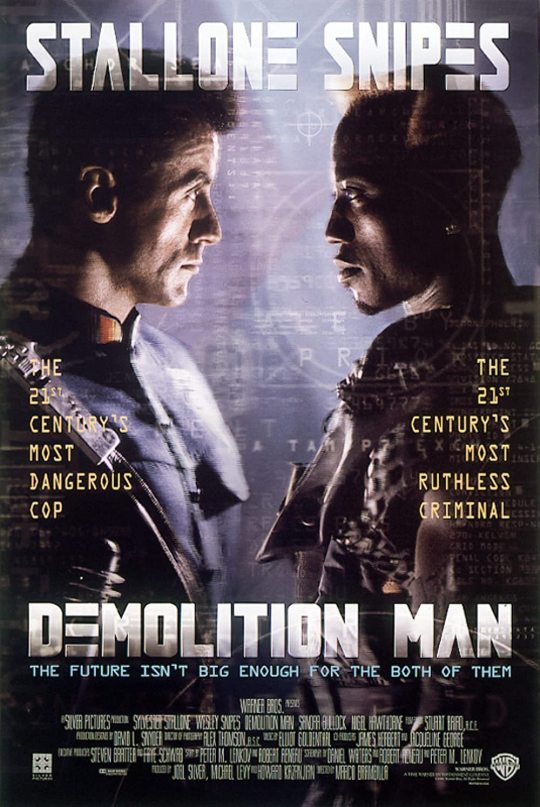
<Originally posted at https://kevinsreviewcatalogue.blogspot.com/2023/04/review-demolition-man-1993.html>
Score: 3 out of 5
Despite coming out well after the '80s "beefcake era" of action movies, in a time when that style was quickly falling out of favor in the face of more grounded films like Die Hard and the films of Steven Seagal, Demolition Man is a film that still gets talked about today, less for its cast or its stunts and more for its unique premise and creative worldbuilding. Taking the plot of your basic '80s sci-fi action flick and dropping it into a seemingly utopian future with a dark side straight out of Brave New World, a book whose author Aldous Huxley is homaged in the name of its female lead, it's a film that's been rediscovered and hailed over the years as a hilarious social satire, a fun sendup of its genre, and even an "anti-woke" classic (even though it... isn't, really?). It's this, more than anything else, that has kept this movie relevant over the years, as while I had plenty of fun watching it at a Popcorn Frights screening, I often found myself wishing that the action was as good as the premise and the comedy, with a lot of the action scenes feeling like they were going through the motions. It's the kind of film that's destined to be a cult classic more than anything, an imperfect action film that's elevated by the unique twists it puts on the basic premise, and is worth checking out for fans of both science fiction and the actors involved.
The film starts out in Los Angeles in the dystopian near-future of 1996, a time when the city has fallen into anarchy, its streets resembling a post-apocalyptic wasteland run by gangs that the LAPD needs military-grade weapons and vehicles to fight. One of its top cops, John Spartan, is basically the closest thing the police have to a super-soldier, an ultimate badass who gets the job done and doesn't care about how much collateral damage he causes in the process. This bites him in the ass when he goes to capture Simon Phoenix, a notorious criminal and all-around psychopath who's kidnapped a bus filled with dozens of people. Spartan may have gotten the job done, but thanks to his carelessness, he got all the hostages killed in the process, and so both he and Phoenix are sent to a "cryo-prison" where they will be frozen for decades, subtly brainwashed all the while so that, when they're thawed out, they'll be productive members of society.
Where the film gets interesting is when it fast-forwards to 2032, where we see that San Angeles, the massive metropolis stretching from San Diego to Santa Barbara with Los Angeles at its center, has completely put the terrible '90s behind it. On the surface, San Angeles is a utopia, a land of clean streets, well-groomed gardens, advanced technology, and an extraordinary standard of living. The visual design is one of the most striking things about the film, framing the future as the kind of beautiful sci-fi city you see in sketches from that time and, more importantly, making it feel real. It's a very '90s future technologically, but even with how consciously sanitized it was, it still felt like a real, lived-in world thanks to some amazing set design. There's always a catch, of course, and the catch here is obvious when we see it: the people of this world are really, really fuckin' c- <*bzzt* YOU ARE FINED ONE CREDIT FOR A VIOLATION OF THE VERBAL MORALITY STATUTE>
...and there you have it. In ending the lawlessness and misery they suffered through in the past, San Angeles threw out the baby with the bathwater and got rid of everything that reminded them of the "bad old days". Cursing, tobacco, red meat, rock music, guns, violence in the media, sexuality just about anywhere, you name it, if society has deemed it harmful in any way, they've banned it and driven those who continue to embrace it literally underground. The result is a world so safe and squeaky-clean that even the police no longer carry guns, having not needed them in years, and so they have no idea what to do when Simon Phoenix gets unfrozen early and proceeds to go on a rampage. I've often seen this movie described as a parody of political correctness (to use the '90s term), but in truth, given how apolitical its writing was, it read more like a Howard Stern-esque mockery of moral crusaders of all stripes, from save-the-world liberals to Bible-thumping conservatives, perhaps best reflected by how they cast Denis Leary as the resistance leader Edgar Friendly basically playing his stock comic persona.
What's more, the intro does a great job showing why society at large might line up and embrace a world like San Angeles. The worldbuilding establishes how this is a city that, underneath its saccharine Brady Bunch surface to use Phoenix's description, has been scarred by the trauma of its past and is willing to do anything to go back to the chaotic nightmare that existed back then. Coming out of 1993 as this movie did, you can feel shades of how a lot of people at the time justified the "tough on crime" policies that arose from the crime wave of the '70s and '80s, and watching it today, you can see it reflected in how a lot of young people, who've grown up knowing the internet as a cesspool of bullying, bigotry, and toxicity and have spent their childhoods with active shooter drills at school, don't really see "censorship" as a dirty word like their parents do. If people are miserable, and they're given the opportunity to get rid of everything making them miserable, not only will they not care about the hidden costs, they'll think it's worth it. Throughout the film, no matter how comically cringe and uncool San Angeles gets, there's always that prologue, and all of the other horrors of the past that are casually brought up, to remind you of precisely why everybody decided to read Brave New World and think to themselves "y'know, maybe the World State had a point."
The worldbuilding in this was captivating enough, as both a product of its time and as something that still holds up today, that it was a shame the rest of the movie wasn't as good. Wesley Snipes steals the show as the comically over-the-top psycho villain Phoenix, Sandra Bullock was fun to watch as the future cop Lenina Huxley who's nostalgic for the gritty '90s but isn't quite as free of her time's uptight morality as she thinks she is, and while Denis Leary only gets a couple of scenes, his trademark rants are always a good way to make me laugh. Unfortunately, Sylvester Stallone was a weak spot in his own movie and felt like he was on autopilot for most of it. He's mostly playing his usual '80s action movie persona, a character type that he's done better before and since, and the scenes where he reacts with confusion at the world he's stepped into felt like there was a much better action-comedy lurking under the surface, one with him as the roughneck straight man remarking upon the bizarrely sanitized future. Most of that material instead went to Snipes, which is probably why I found Phoenix so entertaining. The subplot about how nearly all of Spartan's friends and family are now dead 36 years later was also treated as an afterthought, brought up a couple of times early on but never really built on after, even though it could've done a lot to flesh out his character beyond "super-cop". I would've liked to see him spend more time interacting with the one elderly cop on the force who still remembers him, or maybe have him try to locate his missing daughter and find that she's still alive, which, however it turned out, could've given him something personal to fight for in the future beyond his beef with Phoenix and his will-they-won't-they romance with Huxley. Nigel Hawthorne also felt wasted as Raymond Cocteau, the leader of San Angeles who released Phoenix in order to take out dissidents. He doesn't get to do much beyond make ominous remarks about social control, and he gets pushed aside quickly during the third act.
The action, too, was of its time, and not in a good way. The only scenes that were really worthwhile were the massive explosion in the prologue and the shootout in the museum, and in the latter's case, that's because it was the only one that really played around with the film's world, as Spartan and Phoenix both head there to get their hands on the only deadly weapons in the city and then proceed to duke it out in an exhibit dedicated to the gangland of '90s Los Angeles. Beyond that, however, the action scenes were all pretty middling, with characters throwing haymakers, shooting wildly, and wrecking cars but never really gripping me as they did so. Maybe I've been spoiled by years of John Wick movies and other modern action films both Hollywood and international that have stepped their game up when it comes to their shootouts, fistfights, and car chases, but this film was an unwelcome reminder that not every mid-budget action programmer from the "golden age of Hollywood action" was a John McTiernan or James Cameron film. There's a reason why this style of action movie was dying by 1993, is all I'm saying.
The Bottom Line
Then again, the action isn't what people remember about this movie. No, that would be the fancy Taco Bell, the three seashells, the fines for cursing, and all the other little details that make this world one of the more interesting sci-fi dystopias ever put to film. If you're a fan of creative science fiction worldbuilding, or you just wanna see Sylvester Stallone and Wesley Snipes duke it out in a thoroughly Disneyfied future that's not prepared for either of them, check this one out.
#demolition man#1993#action#action movies#science fiction#comedy#comedy movies#crime movies#sylvester stallone#wesley snipes#sandra bullock#denis leary#nigel hawthorne#three seashells
3 notes
·
View notes
Photo

𝐑𝐎𝐔𝐆𝐇 𝐓𝐈𝐌𝐄𝐋𝐈𝐍𝐄 - information may change in the future
⸻ contains mentions of child ab*se ( not graphically described ), unethical medical experimentation, death, underage drinking/smoking, etc
DECEMBER 20 1987: adrian is born as henry joseph bennett jr.
MARCH 1991: edith bennett nee winchester, dies in a car accident with henry sr. and adrian surviving with minor to severe injuries between the two
POST CAR ACCIDENT: adrian is sent to live with his paternal grandparents while his father recovers
1993 - 1995: due to abuse ( physical & emotional ), adrian is taken away into foster care and spends the next couple of years in the system
1996: adrian is taken into raccoon city orphanage where he would be subjected to different tests and experiments. during this time, he starts going by adrian winchester and often made runaway attempts, getting into trouble with the rpd for said attempts and was usually regarded as a troublemaker
MID-1997: adrian starts going to NEST one for further testing due to abnormalities detected in his brain scans and notable incidents. here, he meets dr. samuel arkwright.
JULY 1998: the spencer mansion/arklay mountains incident happens
1998: the raccoon city outbreak occurs, adrian was in NEST at this time and used the chaos to escape and has taken residency in the sewers while going to the surface for supplies now and again, meets various characters and at the end, is able to escape from raccoon city before it was destroyed
POST-RACCOON CITY TO 2001: in the chaos after the incident, adrian is returned to his biological father in new york city ( who moved there after adrian was taken by cps ). still an alcoholic but functional, henry manages to behave to an extent as someone from the government would check in every 3 to 6 months until they eventually stopped in 2000. during this time, adrian would constantly leave his father’s apartment ( to escape his father whenever the older man starts being belligerent ) to crash at his friends’ couches or just stay out on the streets before returning back
MAY 2001: adrian permanently runs away after his drunken father gets physical, living out on the streets and learning how to steal/pickpocket. he starts smoking/drinking at this point.
SEPT 2002: after living on the streets for over a year ( getting into various brawls and trouble with the cops ), adrian gets recruited to the HCF since he was young and wouldn’t be missed if anything happened to him. given that winter was approaching and how close he came to dying the previous winter, adrian decided to take his chances and joins the HCF
2004: adrian is sent to spain along with krauser to work with saddler and the los illuminados. there he is reunited with leon kennedy and occasionally aids him behind the scenes. while in spain, adrian is injected with a plaga but due to his body’s high immunity, the plaga is rejected but some characteristics are absorbed into his body ( further boosting his immunity and body’s healing process ). after spain, adrian returns to the HCF.
EARLY 2007: after a disastrous mission with the HCF that leaves adrian as the only survivor, he gets picked up by the BSAA for recovery and interrogation due to his connections with the HCF. given that the HCF essentially left him for dead and there was a risk of going to prison, adrian decides to accept the BSAA’s offer to join in exchange for intelligence and a chance to start over. his name is officially and legally changed to adrian edith winchester.
SOMEWHERE IN 2008: obtains his GED.
MARCH 2016 TO DEC 2017: during a mission a month prior to his disappearance, adrian was recognized by dr. arkwright, who is now working with the connections and uses his ties with the organization to capture adrian. kept aboard on a freight ship with specialized equipment to counter his psychic abilities, adrian undergoes various tests and experiments in order to determine whether his abilities can be replicated. during these tests and experiments, an upgraded version of the experimental drug p30 was developed utilizing the spinal fluid that was extracted from adrian.
POST-RESCUE: he is rescued and recovered by the BSAA, but his faith and trust in the organization has lessened considerably. adrian is put on medical leave to aid in his recovery and to attend therapy ( which he constantly fights against ).
APRIL 2018: adrian leaves the BSAA and moves to alaska. there he is monitored by BSAA agents but doesn’t make any move against them.
NOV 2018: adrian is recruited by chris redfield and joins the hound wolf squad, codenamed: GRAY.
2 notes
·
View notes
Text
Season previews: Essendon (12th)
Last season: 11th (11 wins, 12 losses, 89.7%)
Notable ins: Ben McKay (North Melbourne), Xavier Duursma (Port Adelaide), Jade Gresham (St Kilda)
Notable outs: Brandon Zerk-Thatcher (Port Adelaide), Andrew Phillips (retired), Massimo D'Ambrosio (Hawthorn)
11 June, 2023. Essendon have just beaten - no - embarrassed Carlton in a King's Birthday Eve blockbuster in front of 83,000 fans and set against the backdrop of a premiership reunion for the famous 1993 "Baby Bombers." The 34-point margin does do not justice to the way Essendon monstered the Blues. Carlton were out-pressured, out-worked and out-classed, kicking just six goals and laying only 34 tackles. Michael Voss is under extraordinary pressure and looks at long odds to keep his job as Blues fans bay for blood. Essendon on the other hand head into the bye sitting in sixth position on the ladder and rising on the back of four consecutive wins. A top-eight finish seems likely, perhaps at last that elusive finals win and maybe even more.

Jump foward eight months to now and this feels like a dispatch from an alternate universe. It was Carlton that played in and won two finals. Michael Voss is out of the hot seat and has secured a two-year contract extension. And it is Essendon that entered another off-season searching for answers on what went so wrong. From that night in June they yo-yoed around, alternating between poor performances against sides they should have been roughly equal to, brave efforts in honourable losses and precisely one win. Despite their collapse, the Bombers were somehow still in the finals hunt with four games left. Alarm bells were ringing when they were lucky to beat the two bottom sides, both of whom had gone so long without winning they forgot how to ice games they could have won. Yet Essendon’s season remained alive heading into a round 23 clash with GWS, also fighting for their life and one spot below the Bombers on the ladder. The eight beckons for the winner, lights out for the loser.
GWS beat Essendon by 126 points that day and went on to finish the regular season four spots and 17.4 percentage points higher than the Bombers, ultimately falling one point short of a Grand Final appearance. The football world fell in love with how Adam Kingsley came in to the Giants and quickly instilled a winning mentality, playing with both joy and a hard steely edge. Kingsley’s family would right now be grieving an untimely death due to stress ball poisoning if he had landed at Essendon instead. The Bombers capitulated the next week and only kicked three goals against Collingwood, spared a defeat greater than the 70-point loss they did cop because the Magpies put the cue in the rack at half-time. They had bigger fish to fry than these pretenders.
There is no shortage of pundits that expect this to be the year the Bombers pull it together and climb up the ladder, as there are every year. Their reasonings range from sound logic (Brad Scott is at worst a very competent coach and there is talent on this list) to blind optimism (Essendon is a big Victorian club and the competition is at its best when they are all playing well and Jake Stringer is in a contract year). The alternate view is that the best indicator of future performance is past performance. On that measure for more than a decade, at least since they were humbled by the drugs saga and in truth for some time before that, Essendon have underperformed and thus will most likely continue to do so. Since the league expanded in 2011, only Gold Coast, Carlton, North Melbourne and St Kilda have won less games and only the Suns have won the same number of finals (zero).
There is little value in running the rule over Essendon’s off-season recruits, their likely best 22, their first five games of the season or their run home. When the chips are down, Scott will have no recent history to point to of this side doing the hard thing and fighting against the odds. You will find many who concoct again a reason for that to change in 2024. They would be better served by recalling the definition of insanity.
Sunny days are ahead but not just yet, next up is Gold Coast...
0 notes